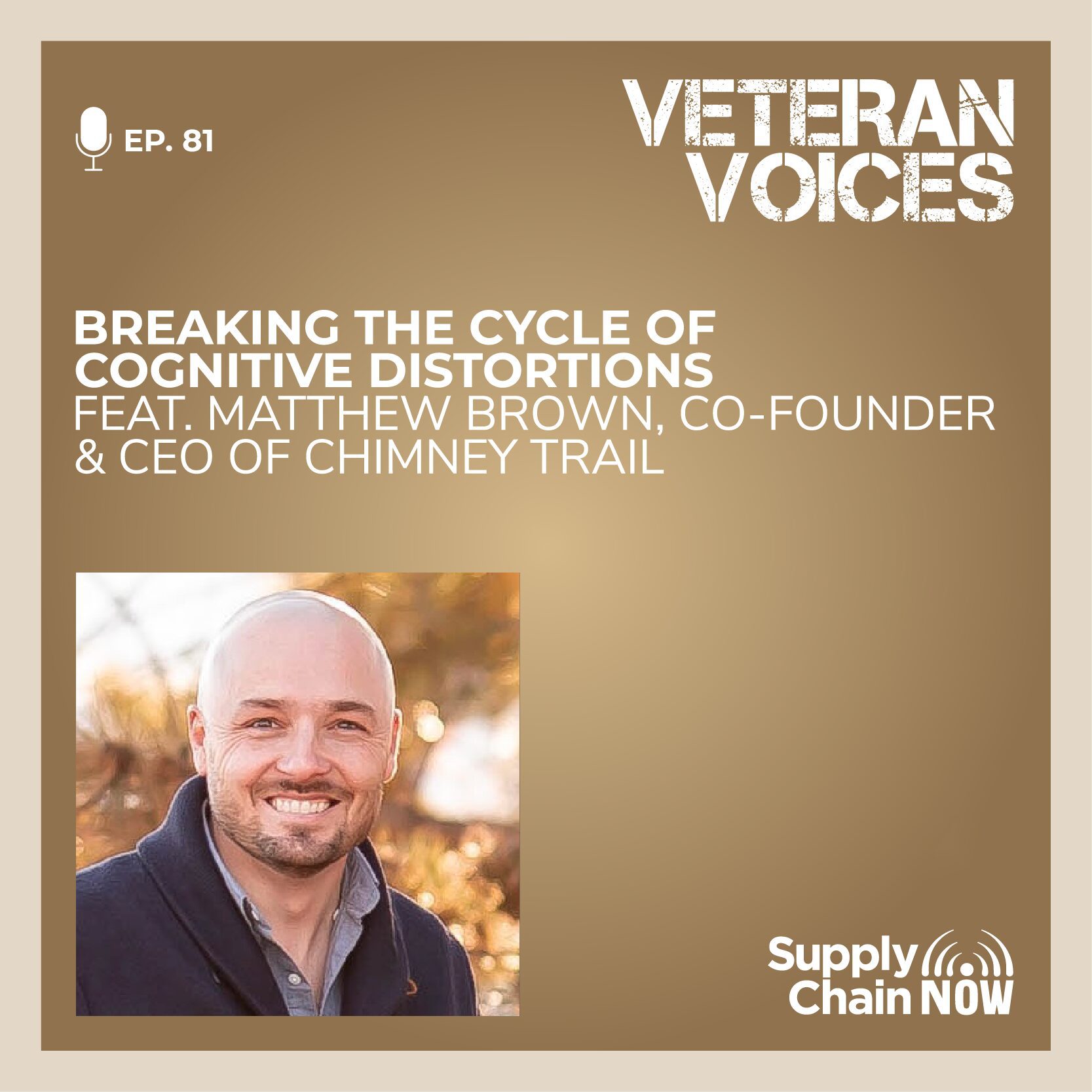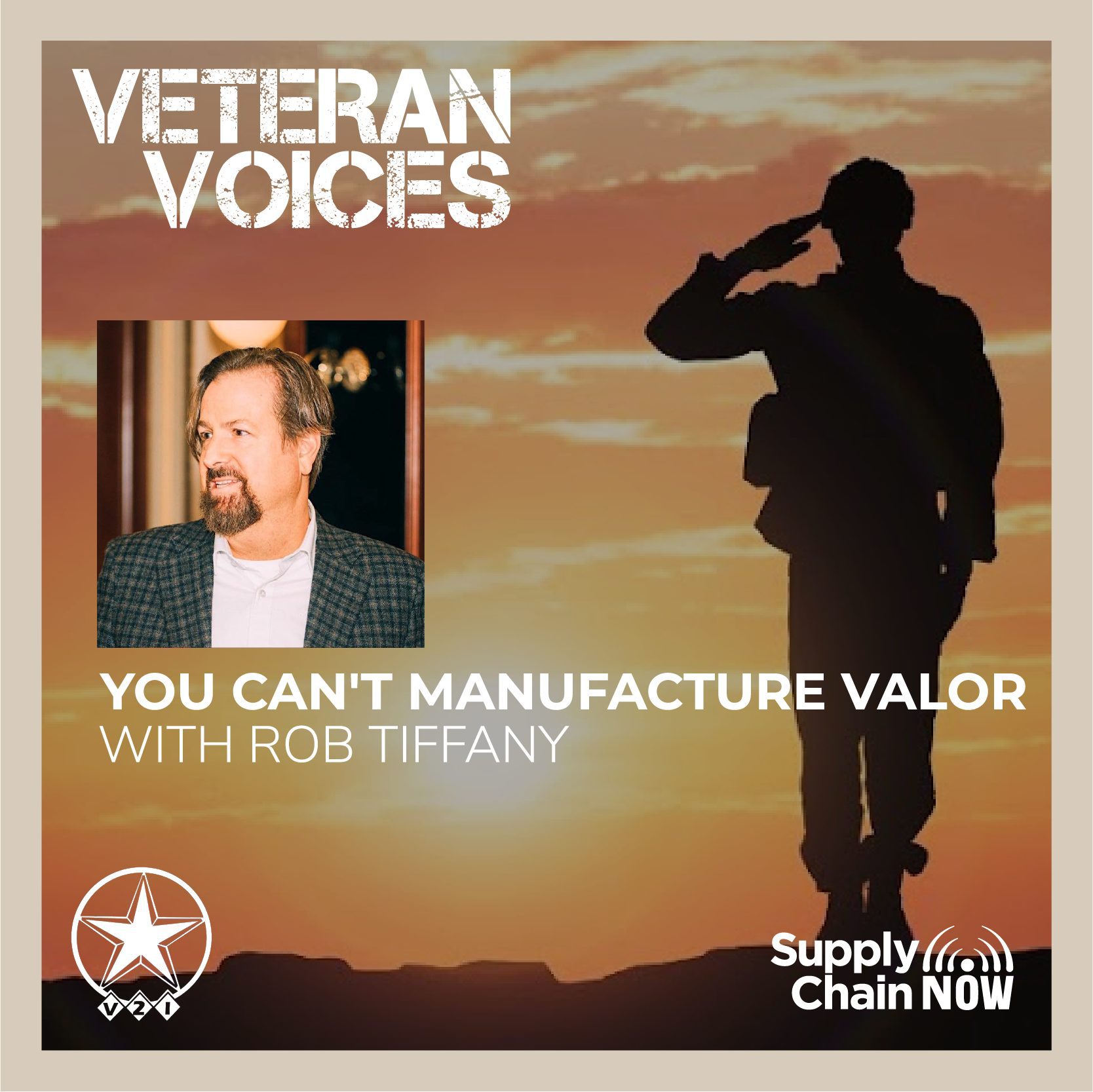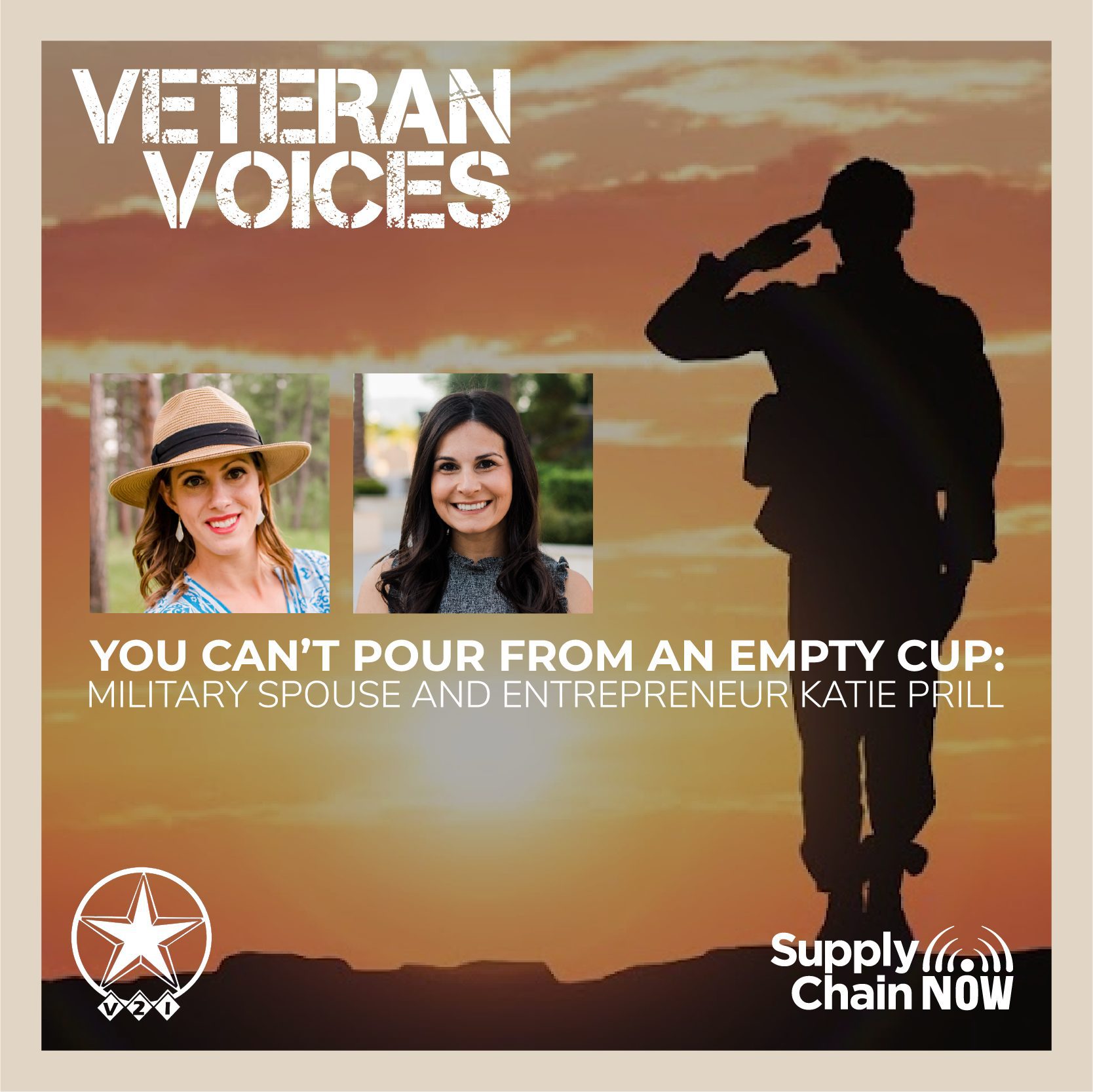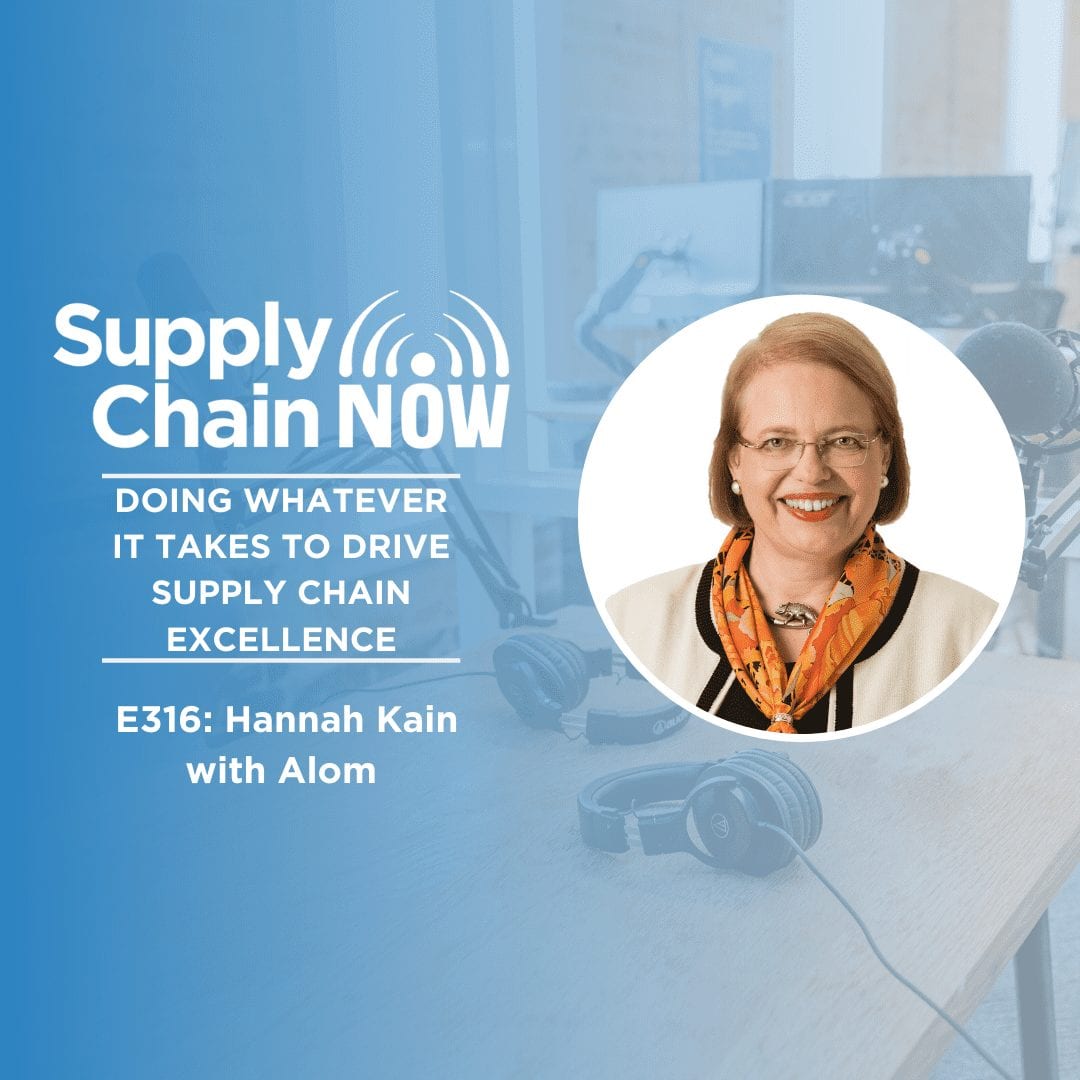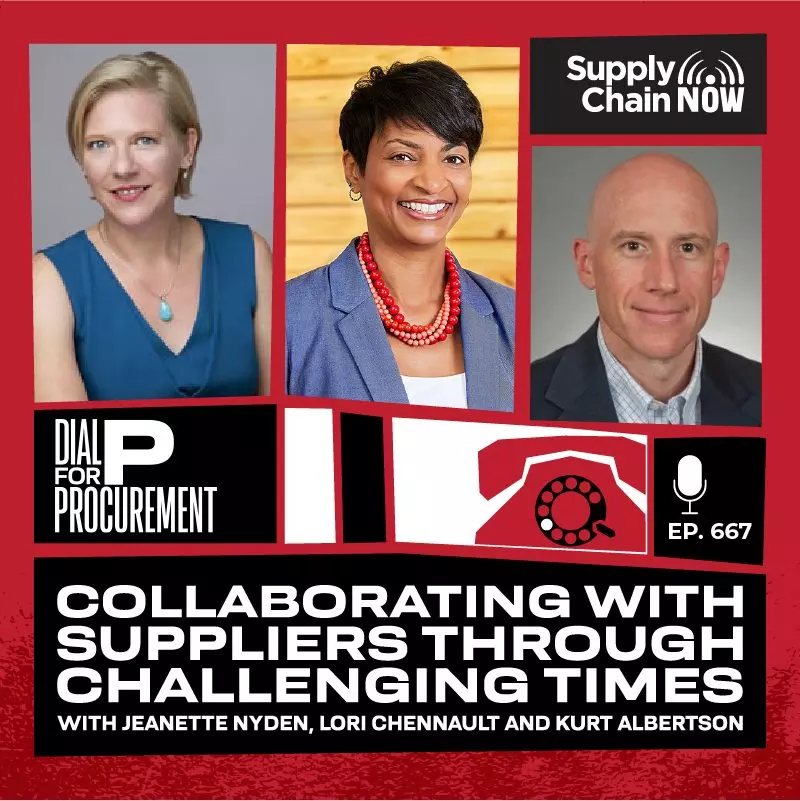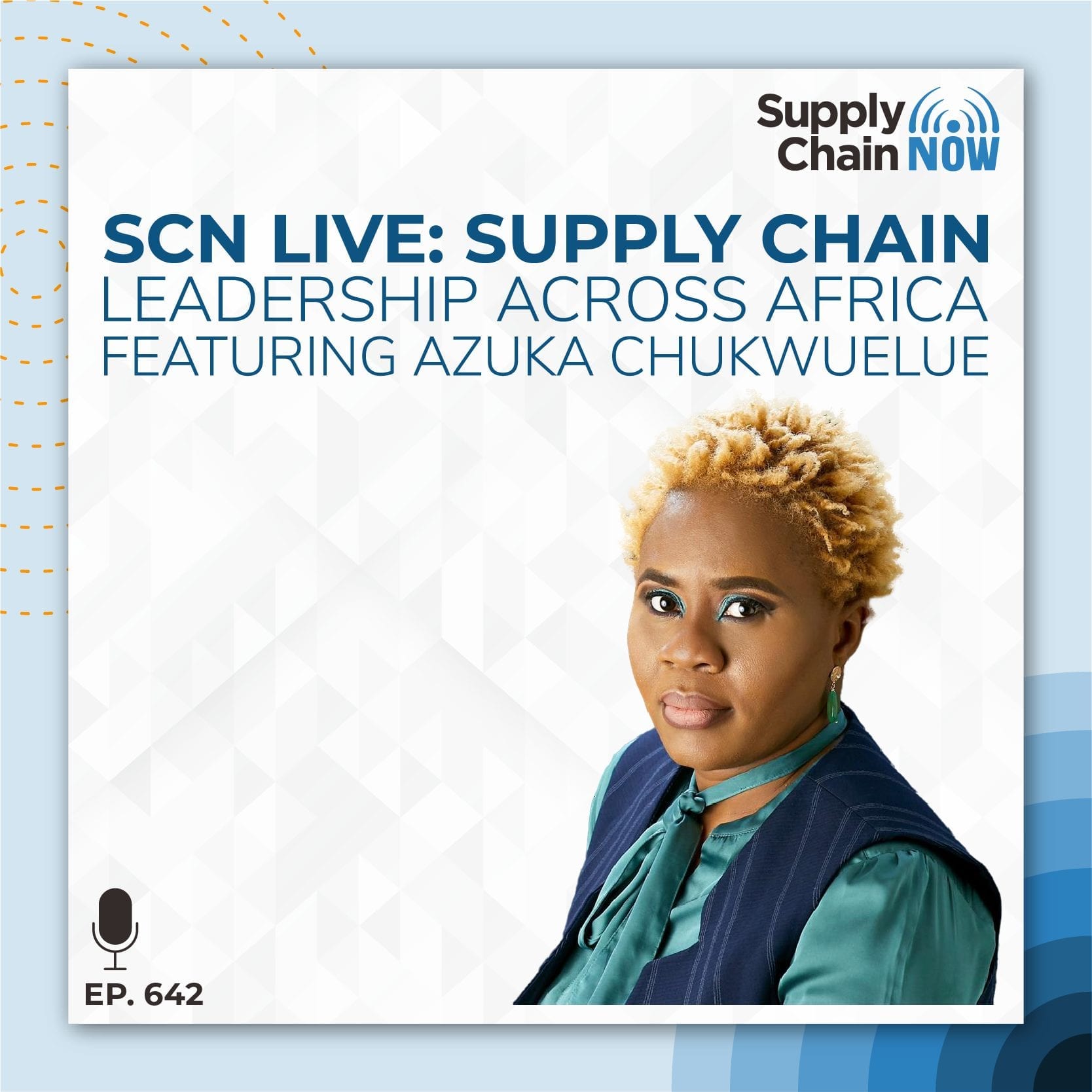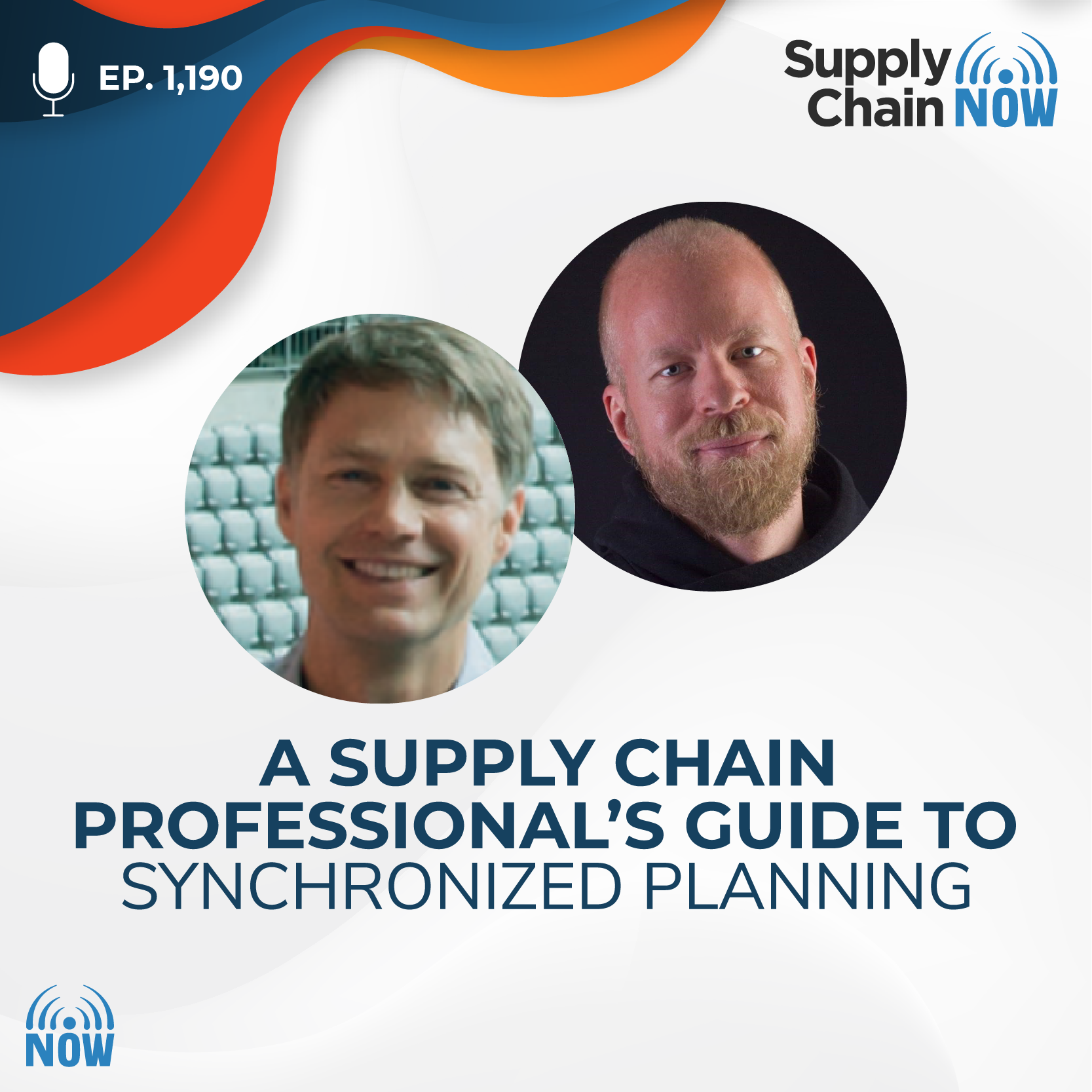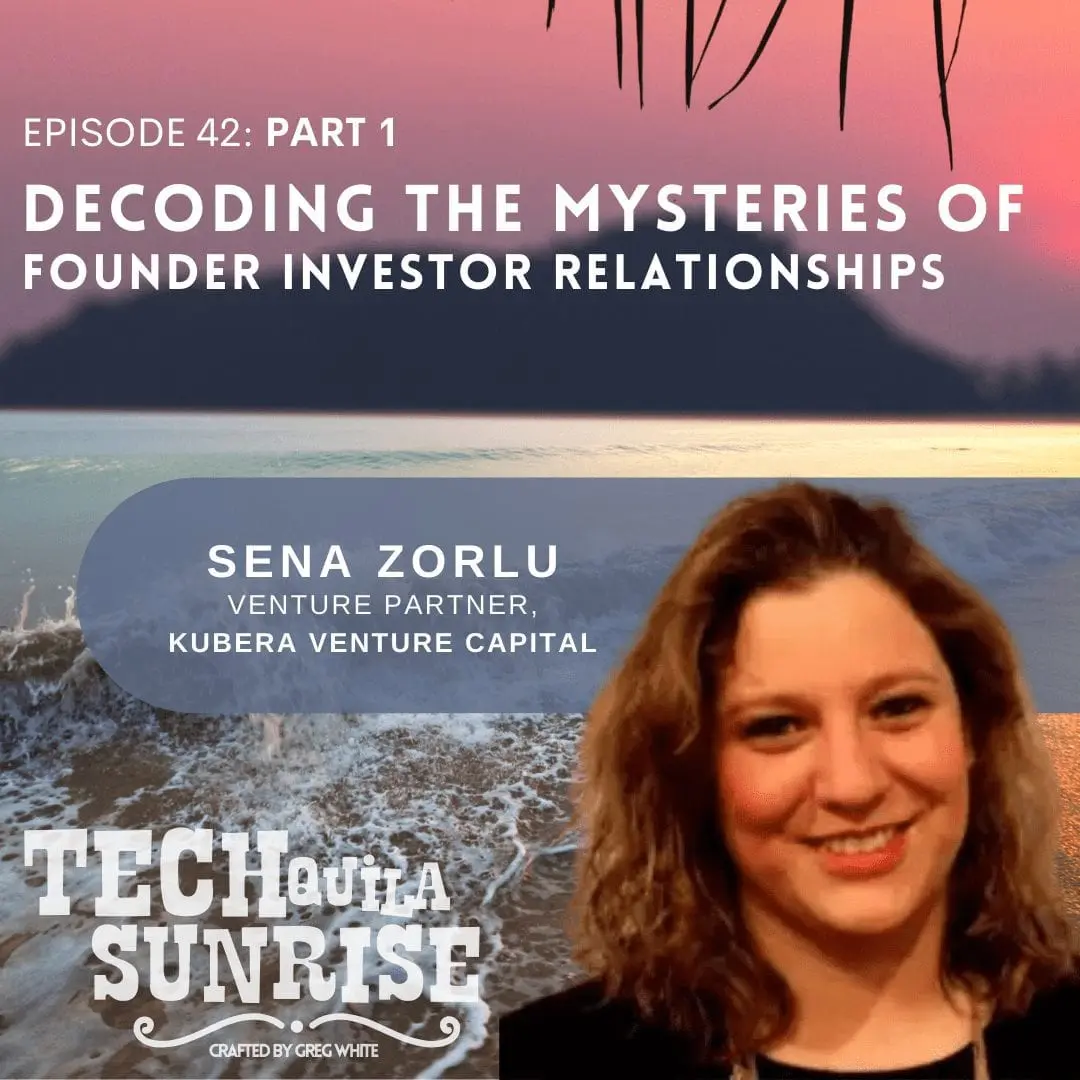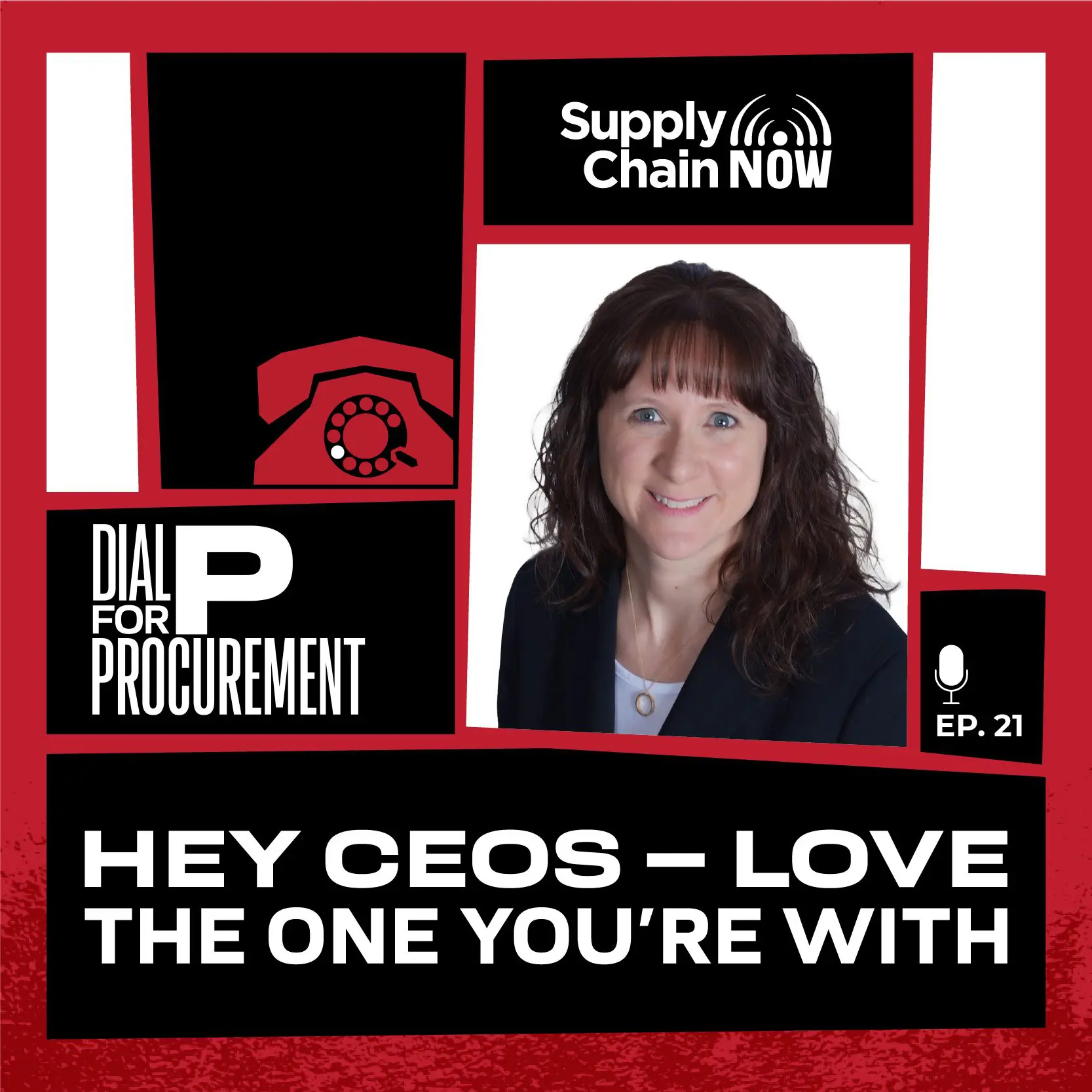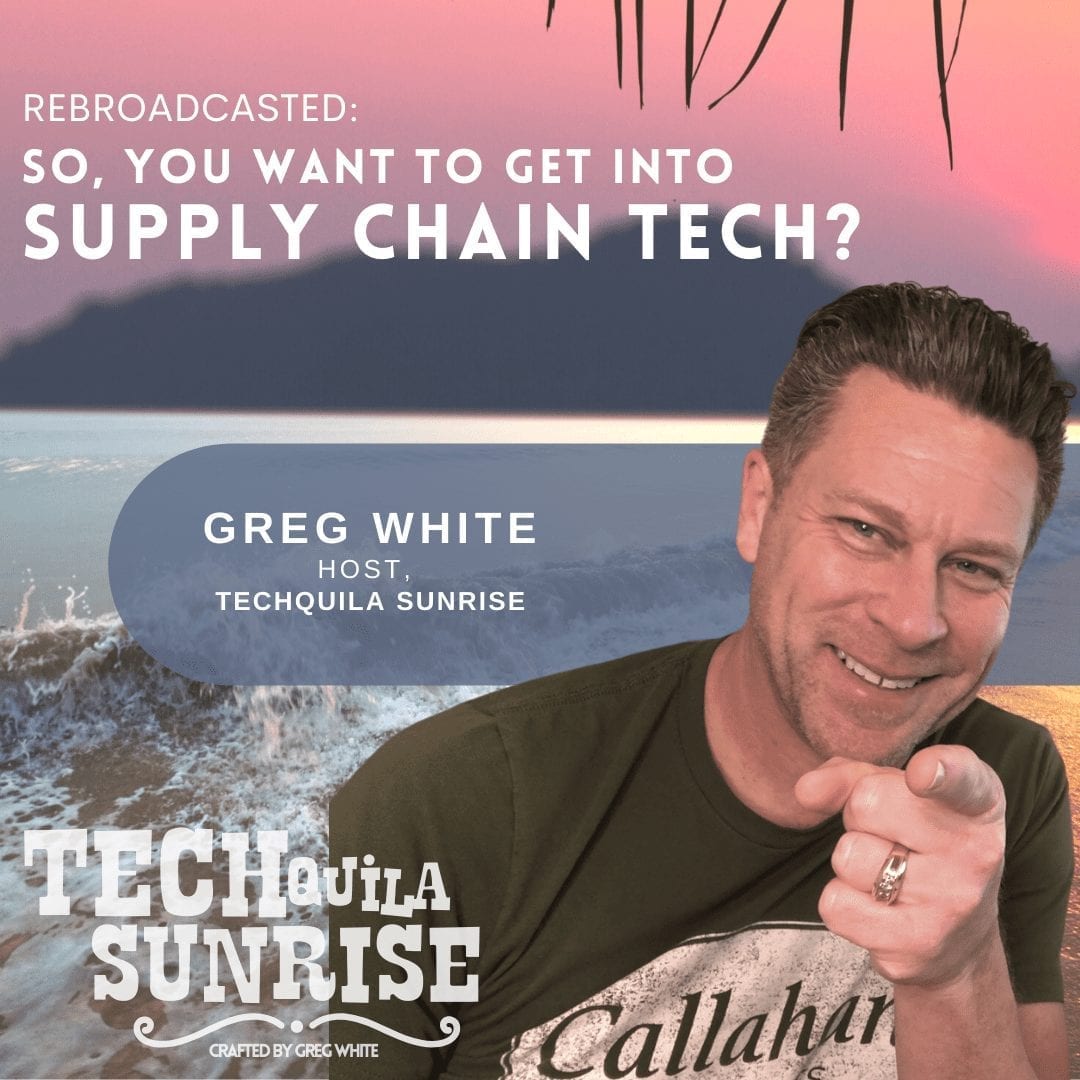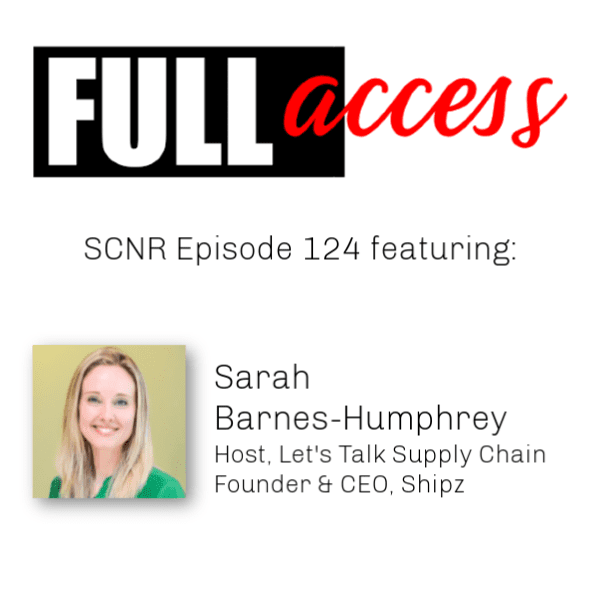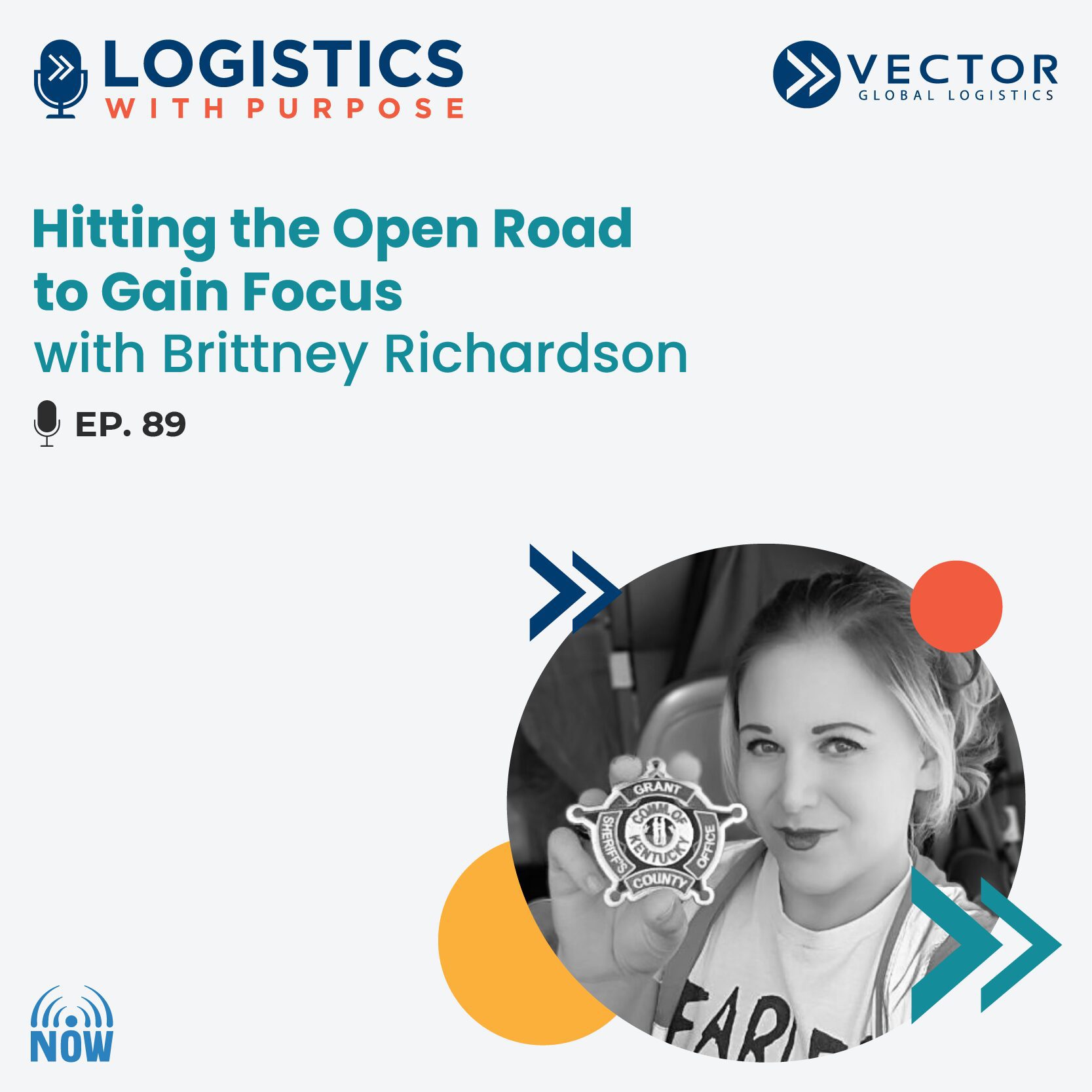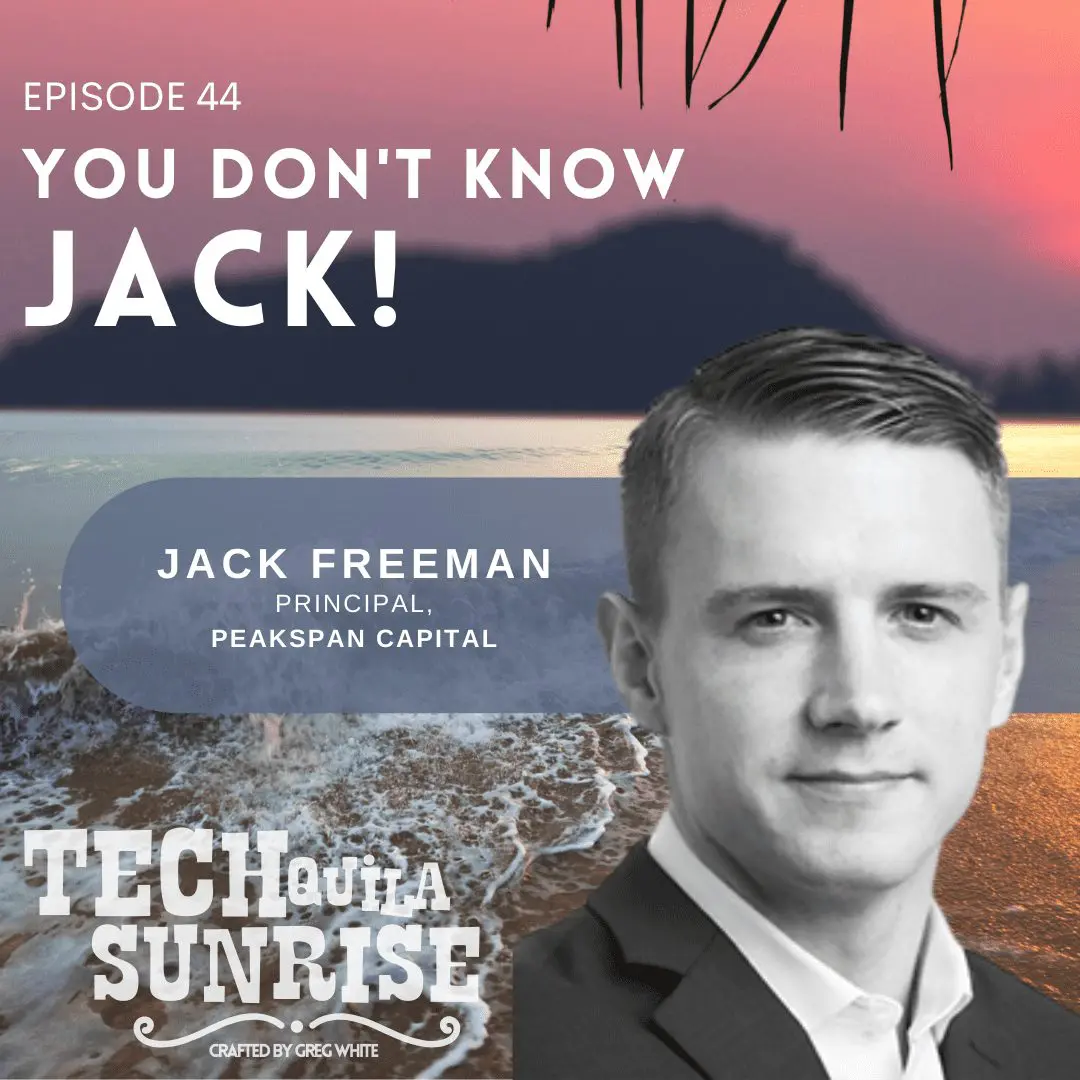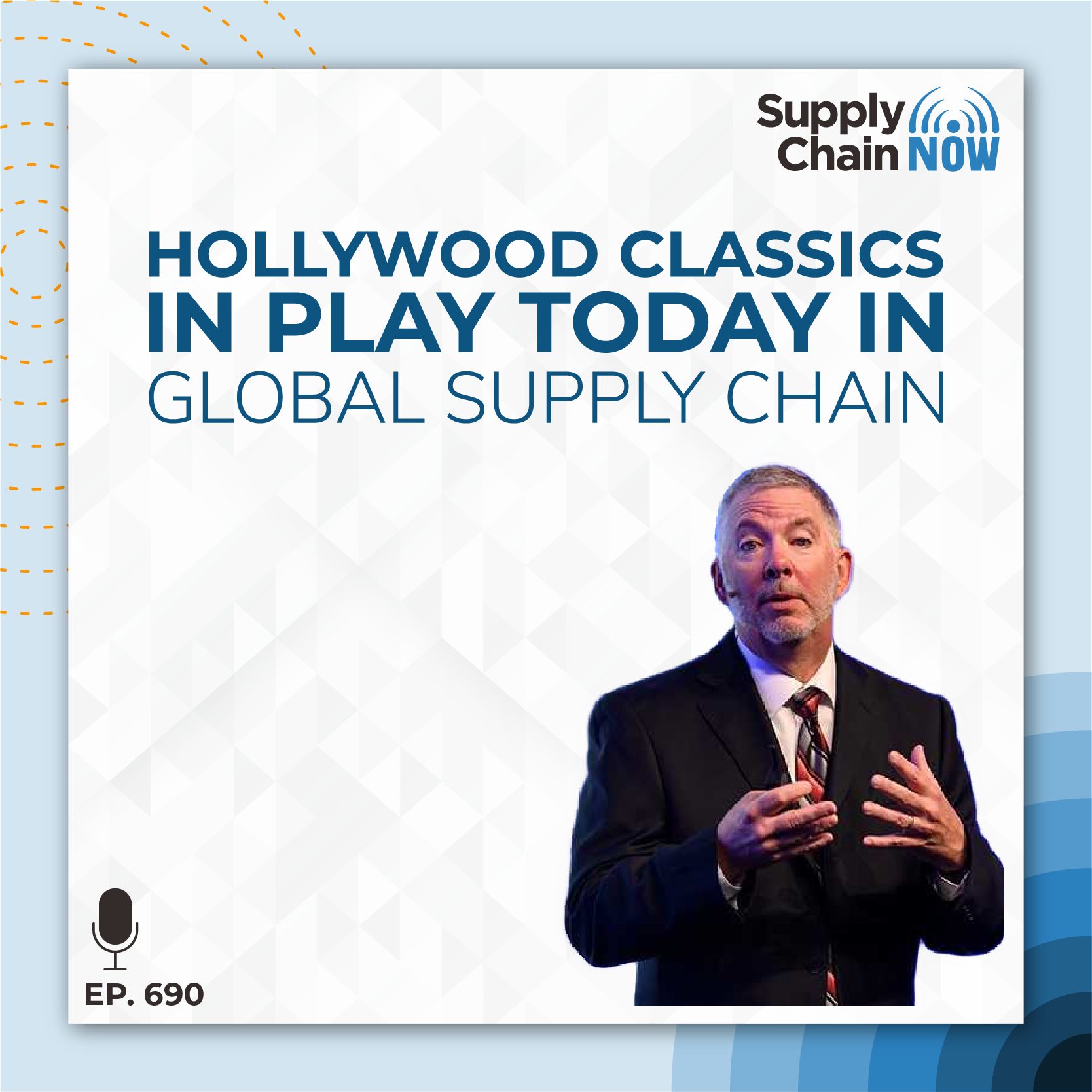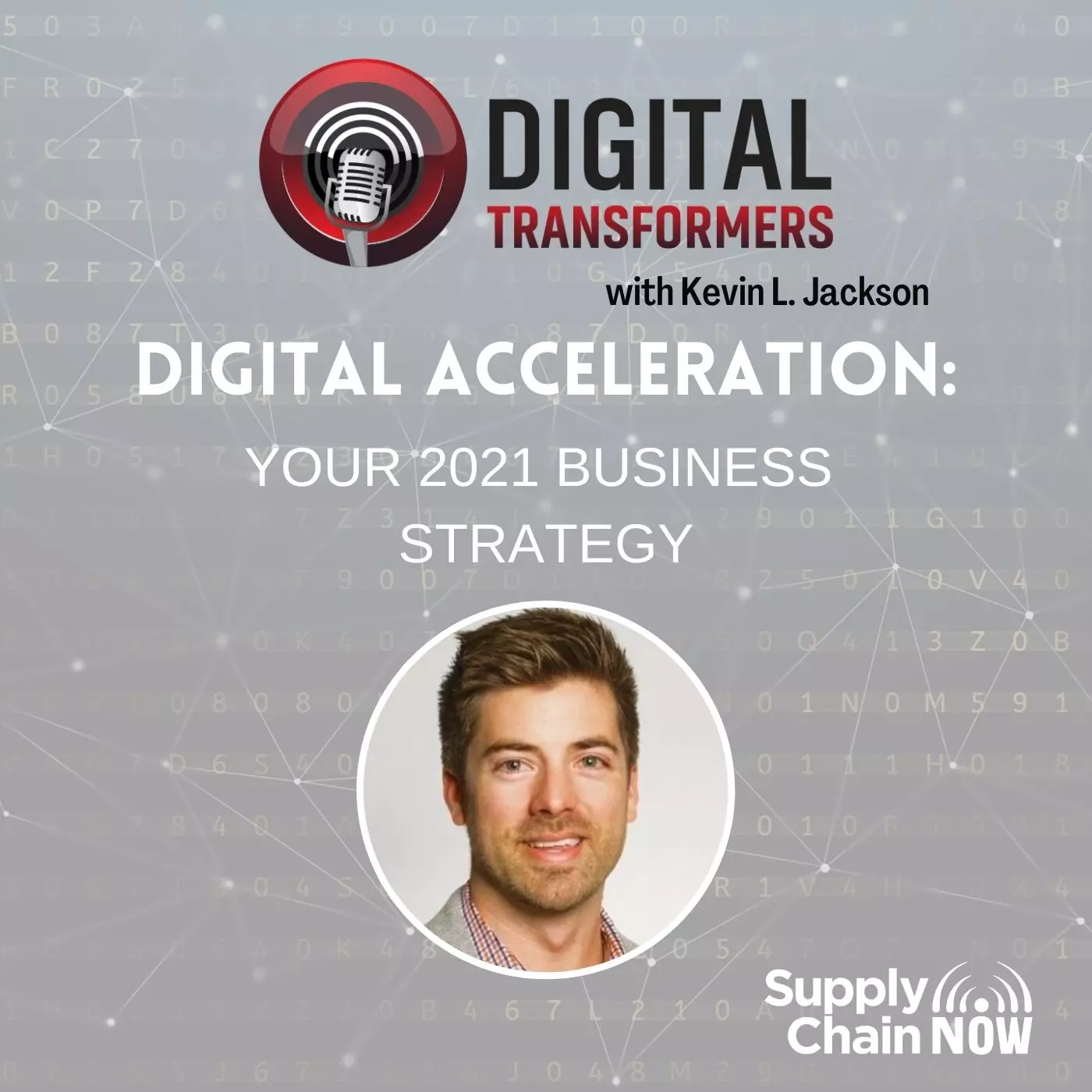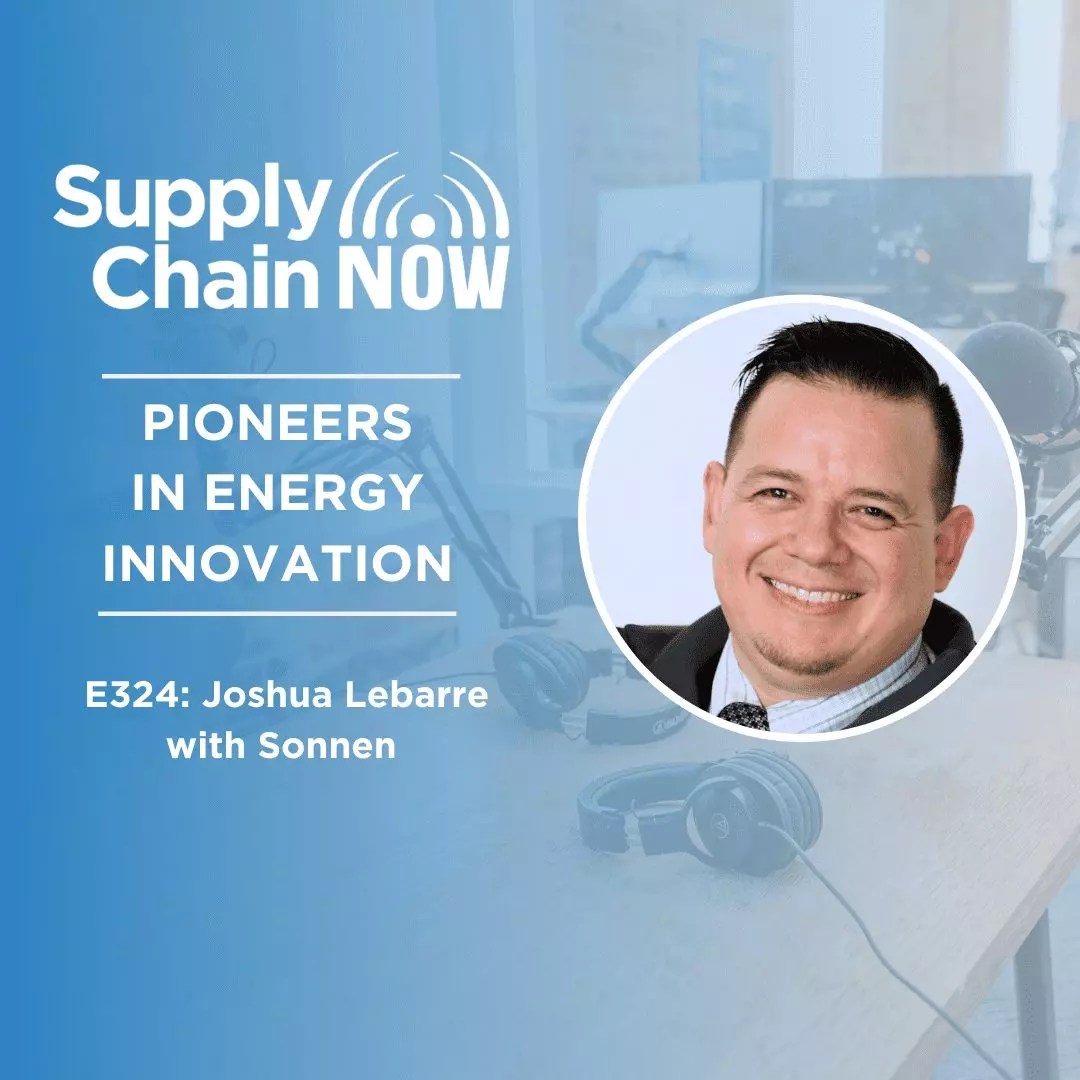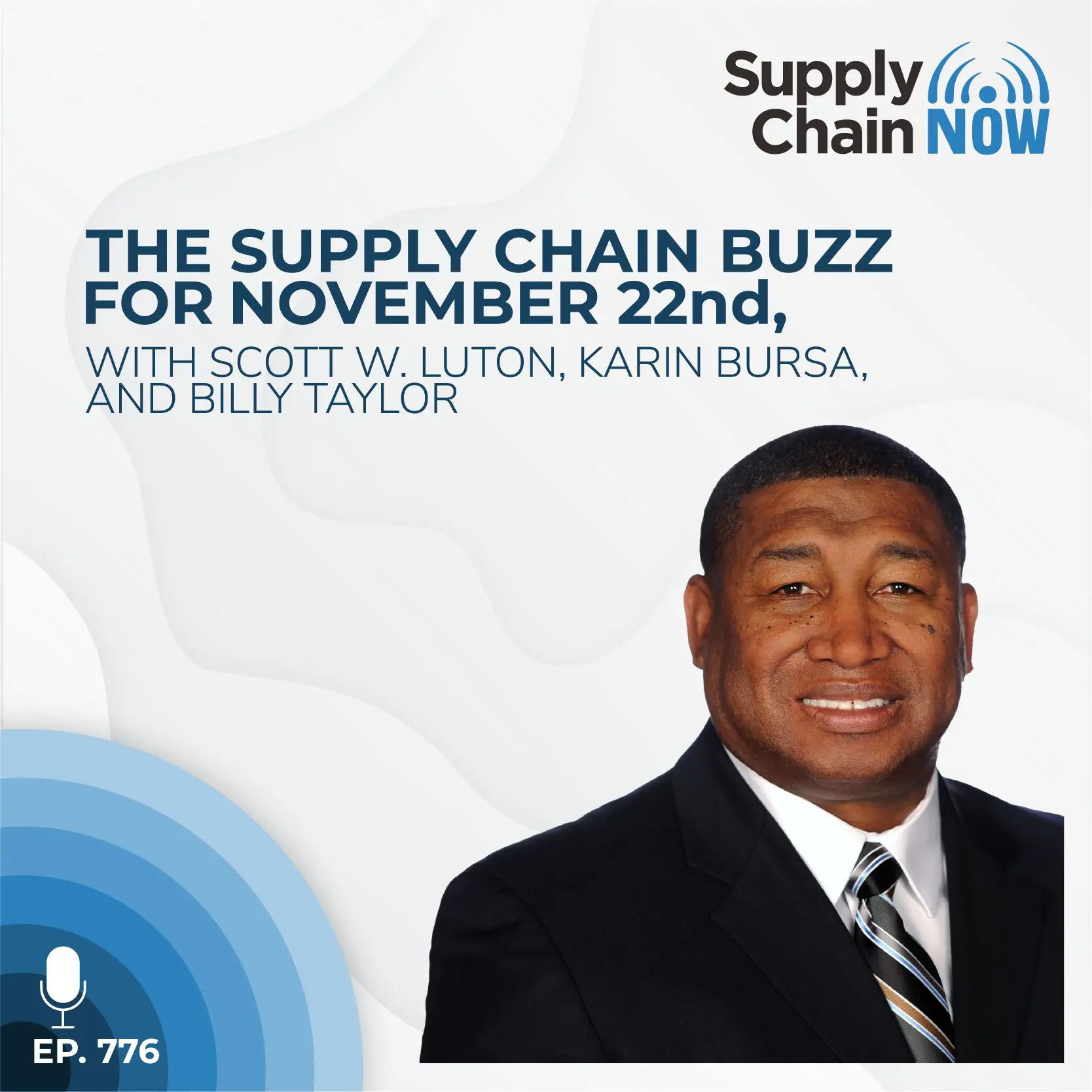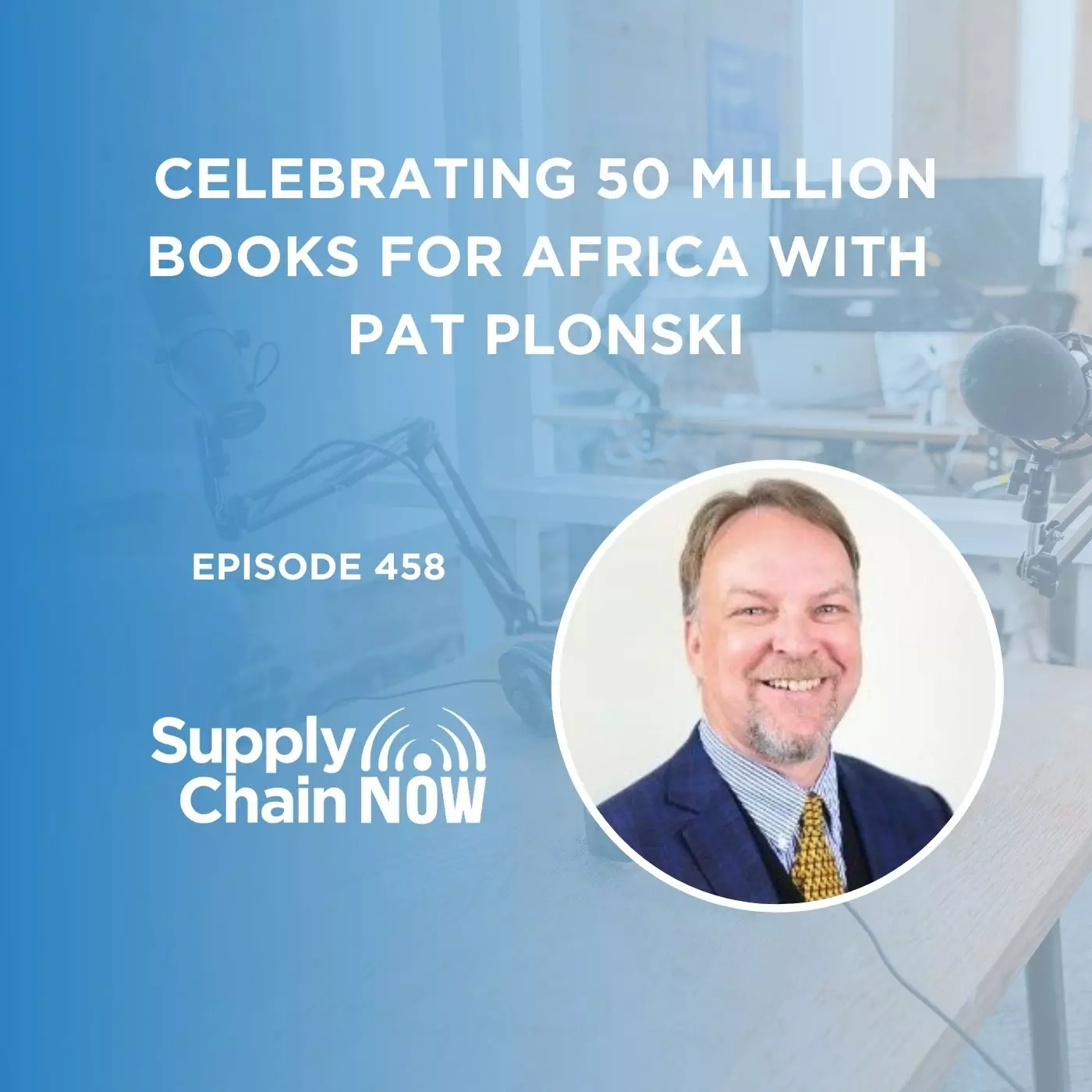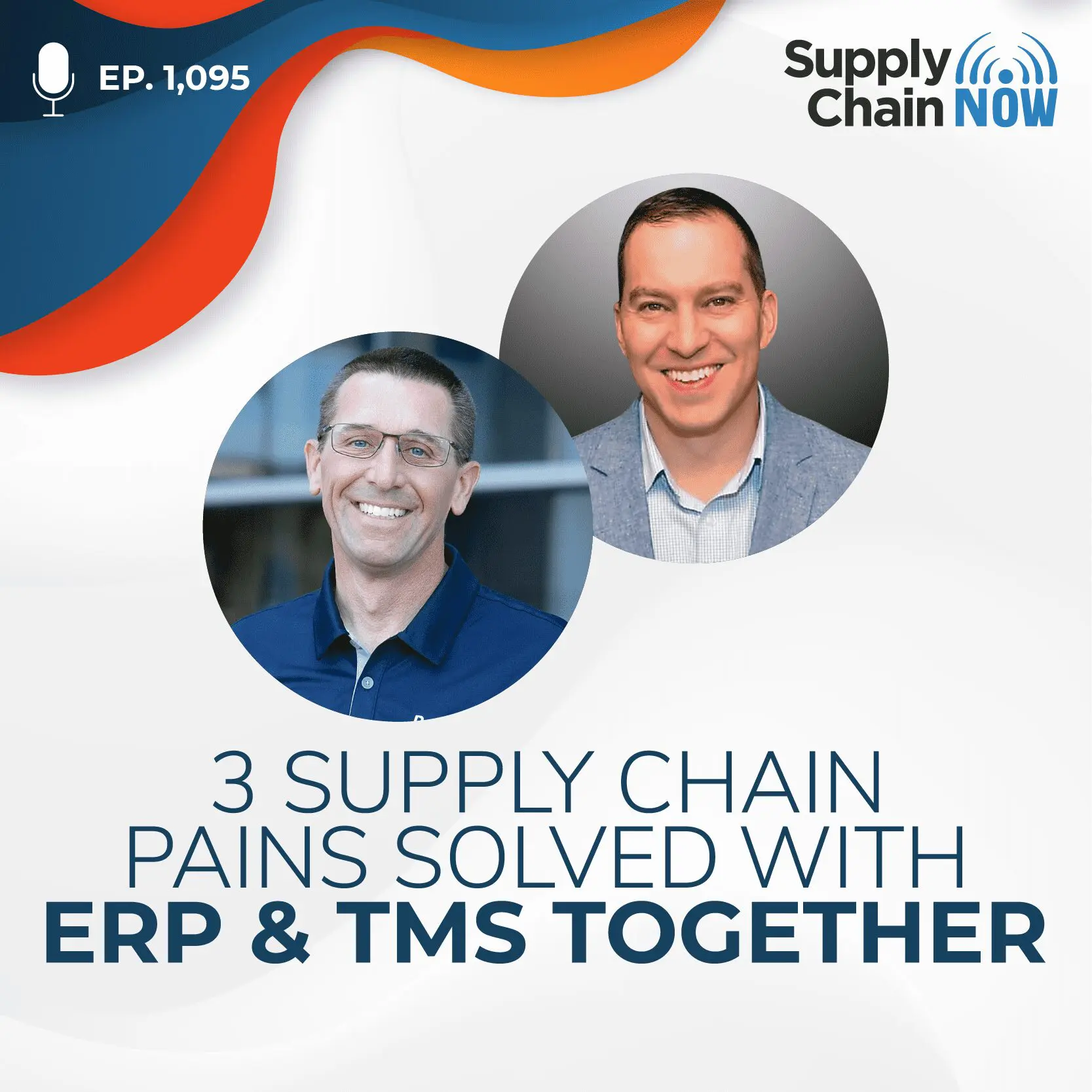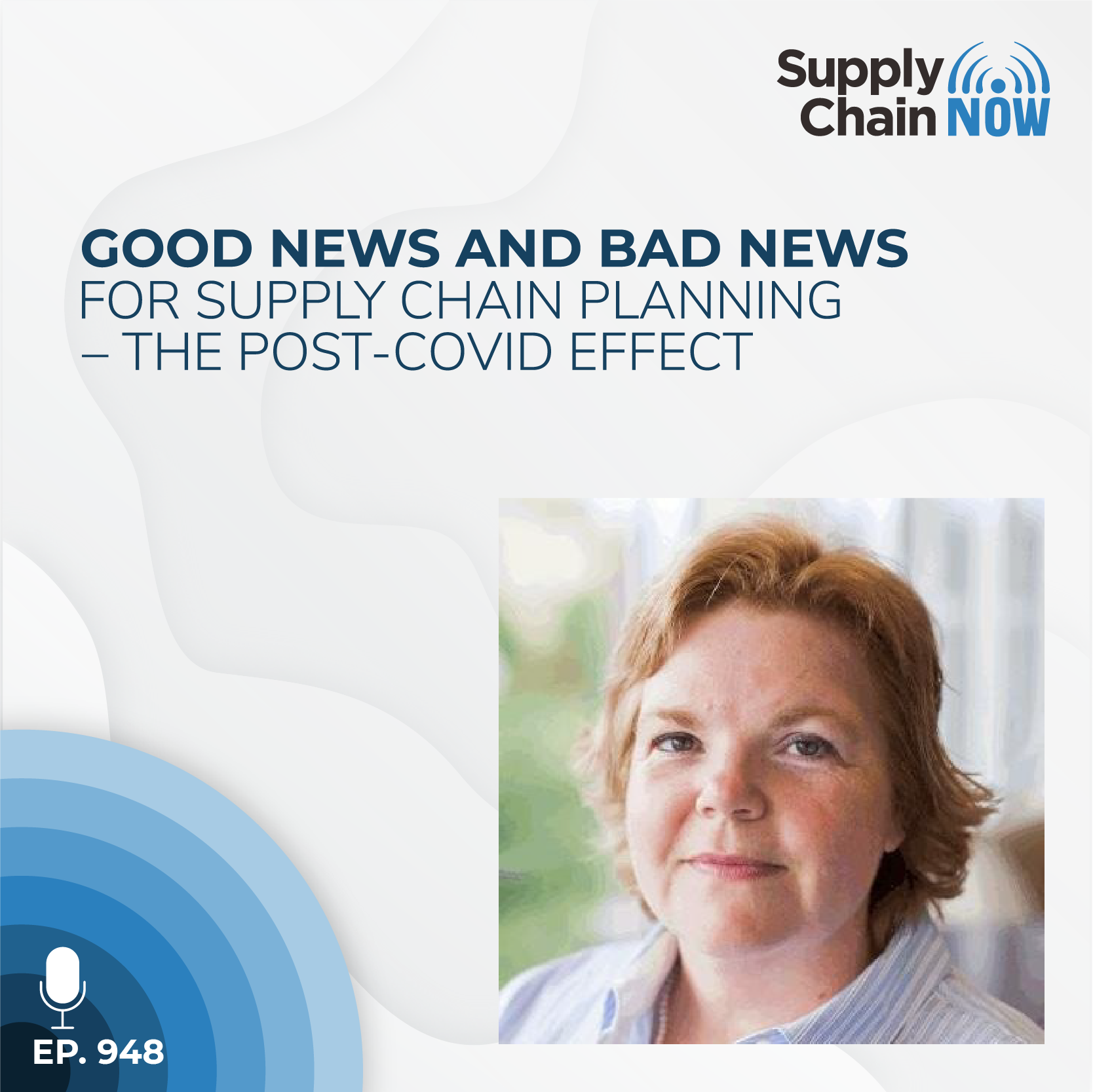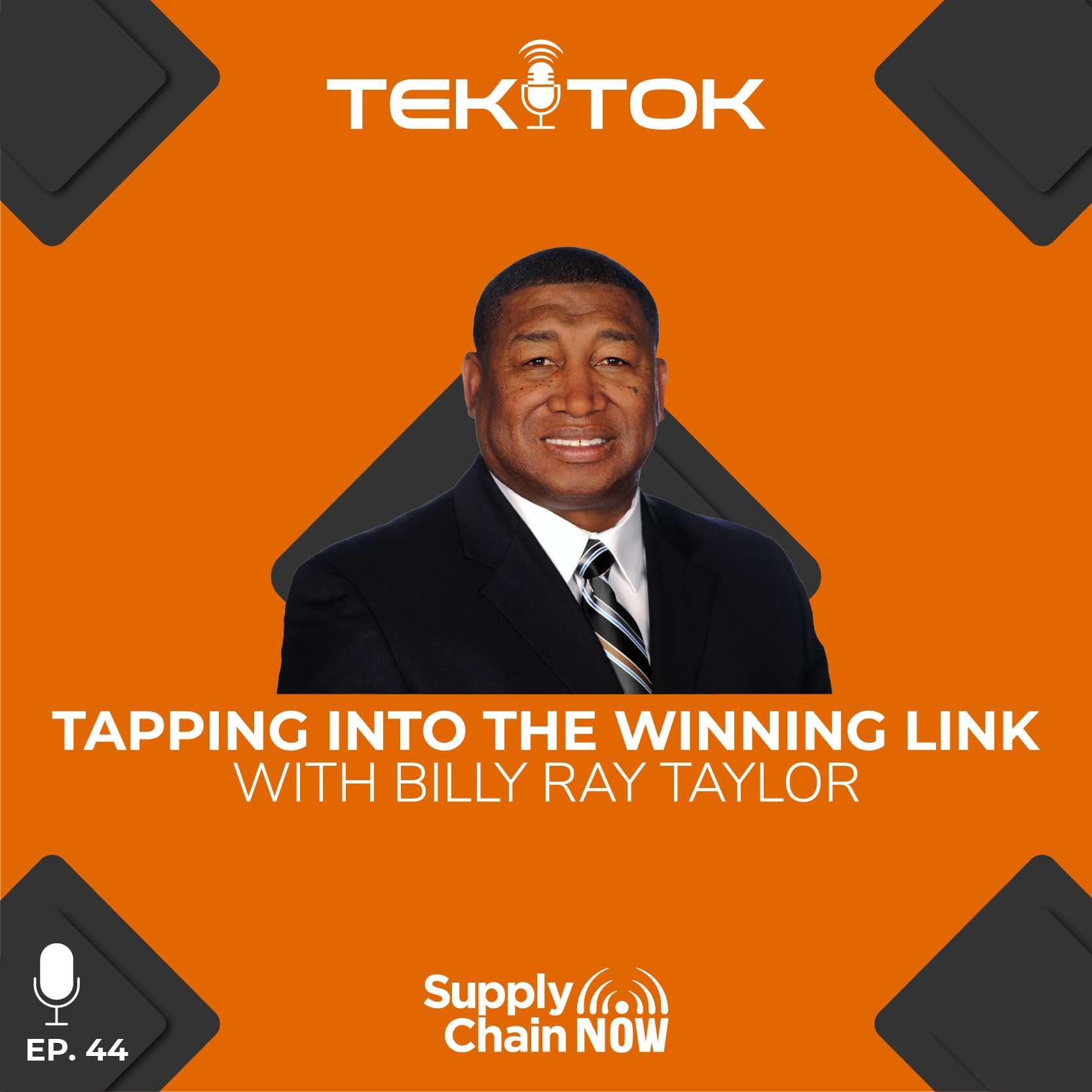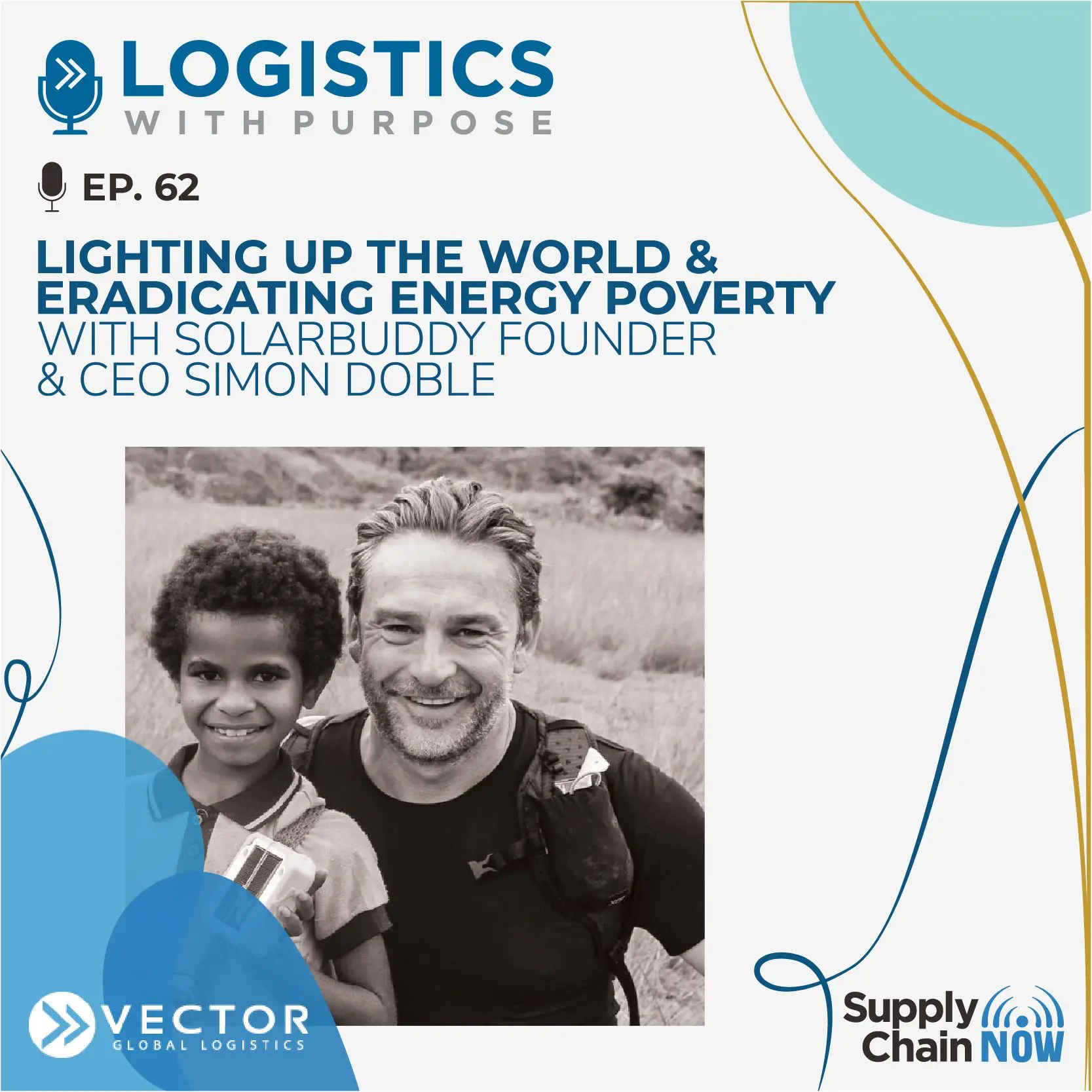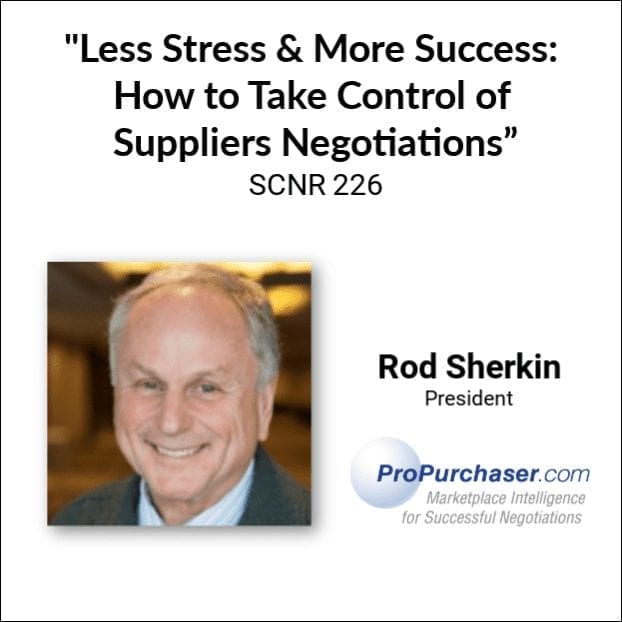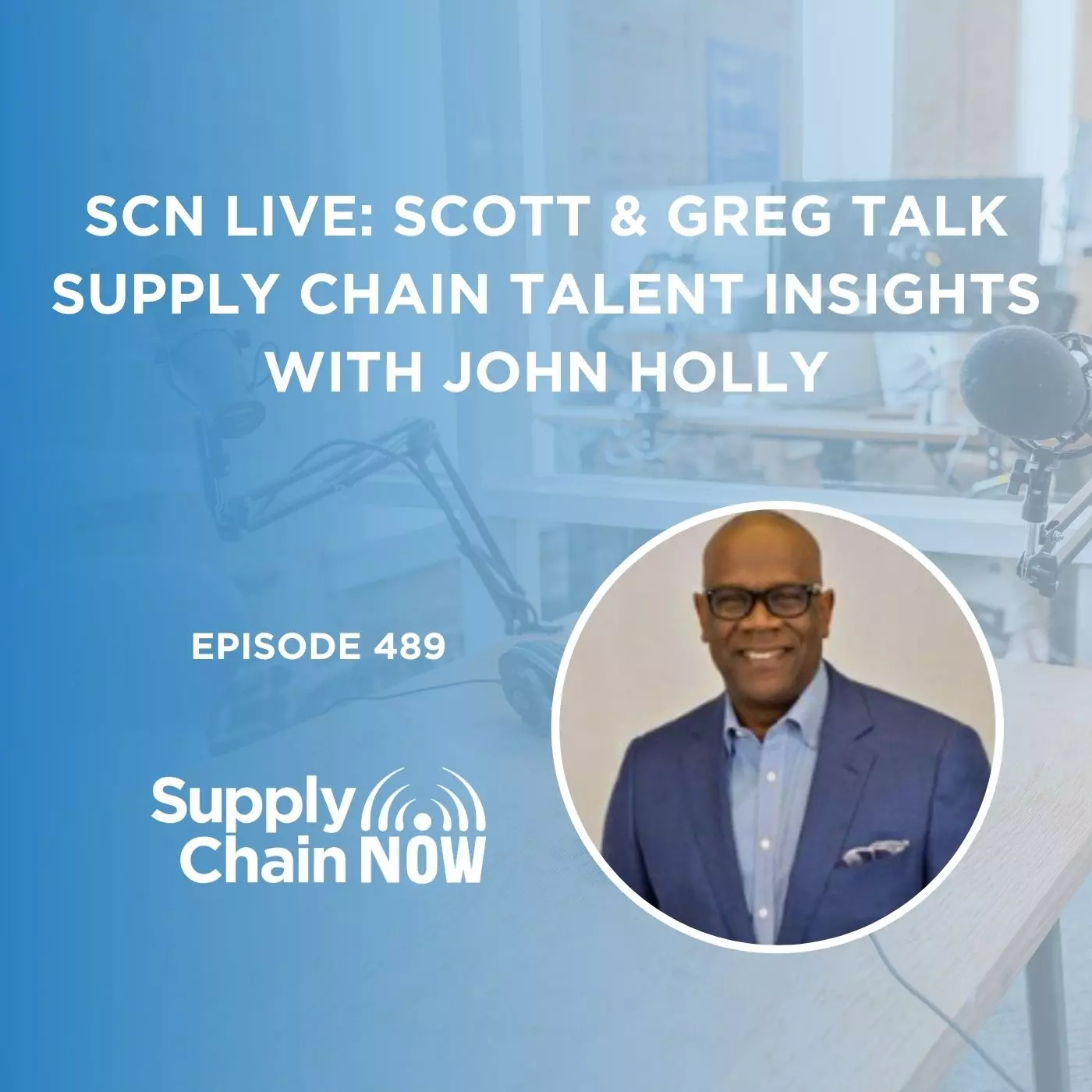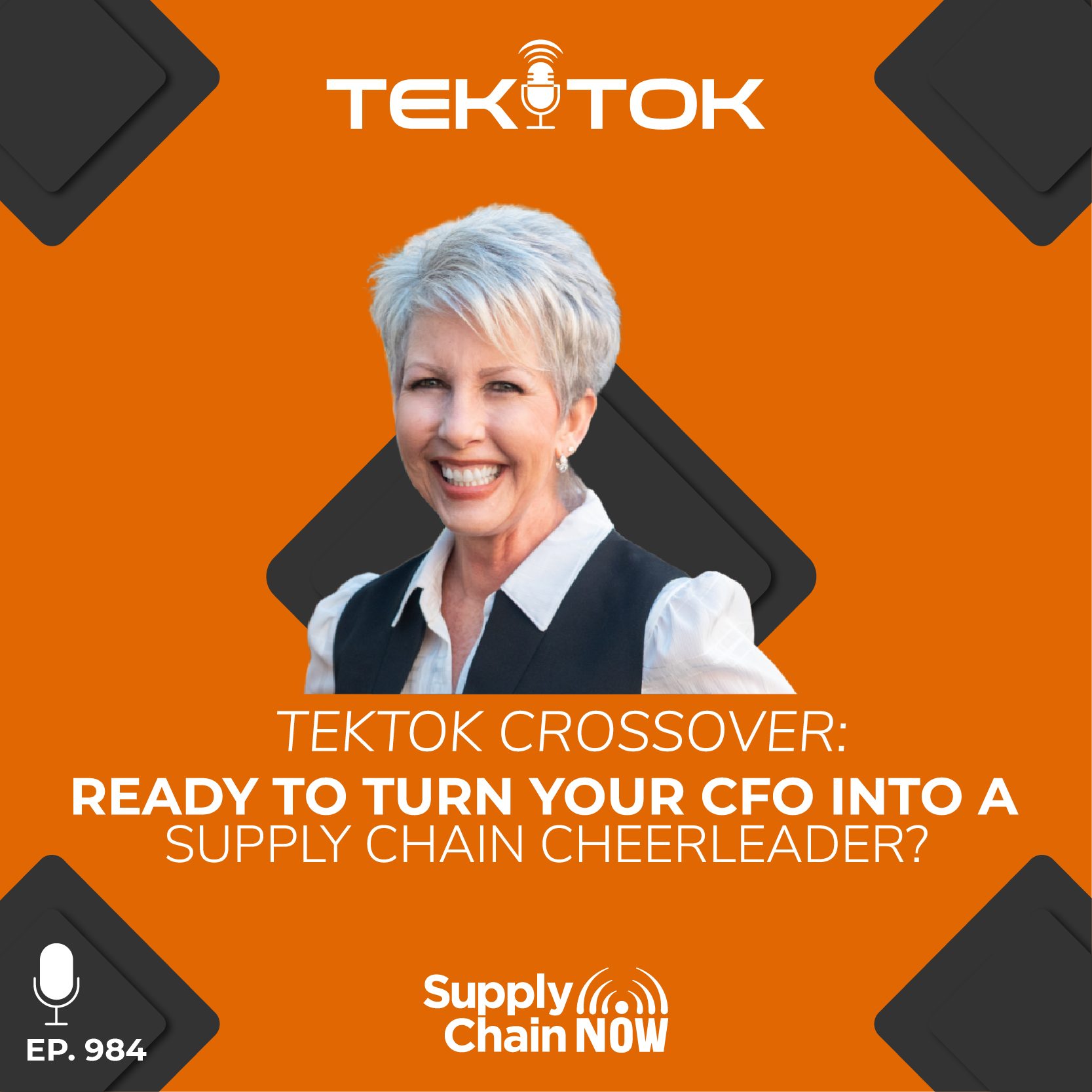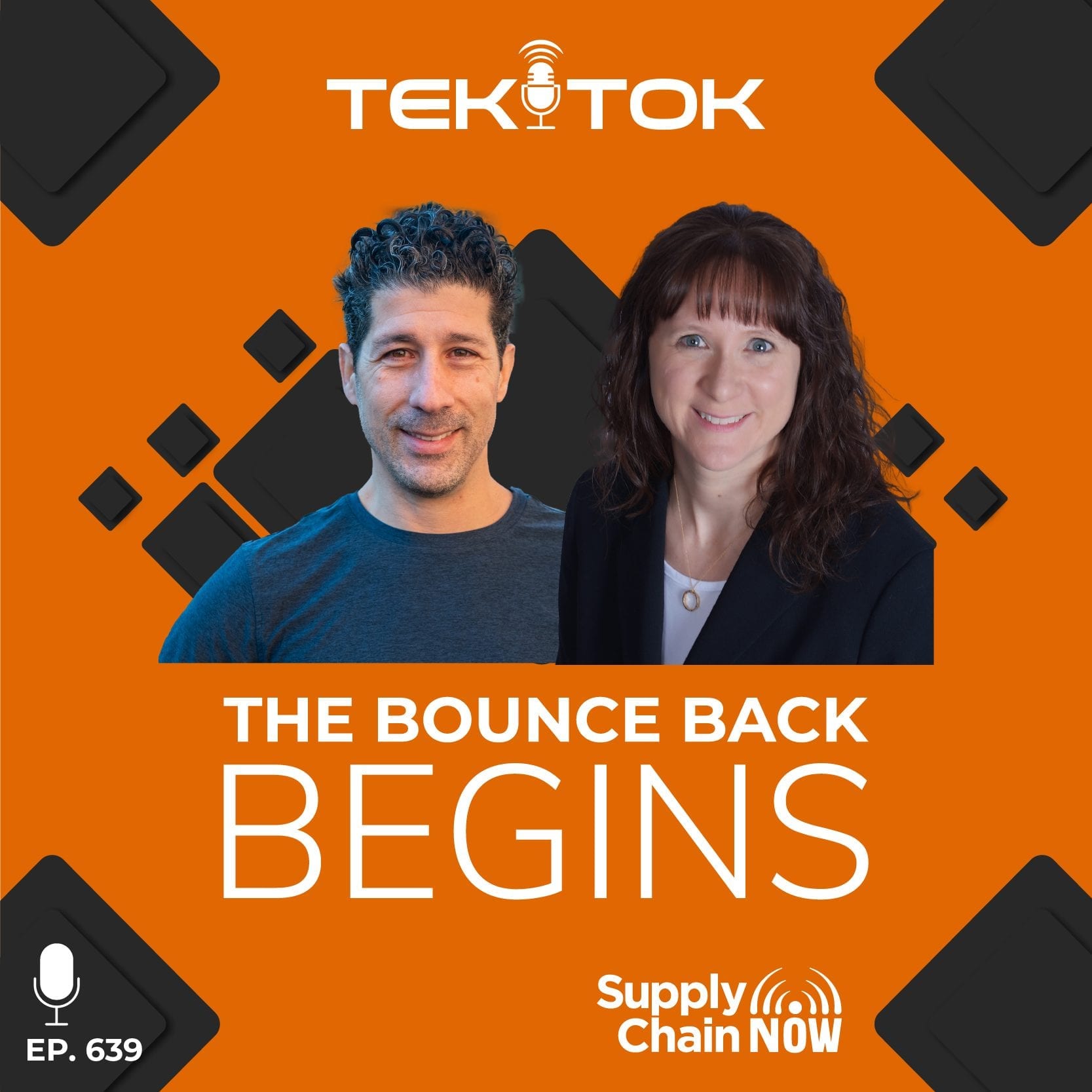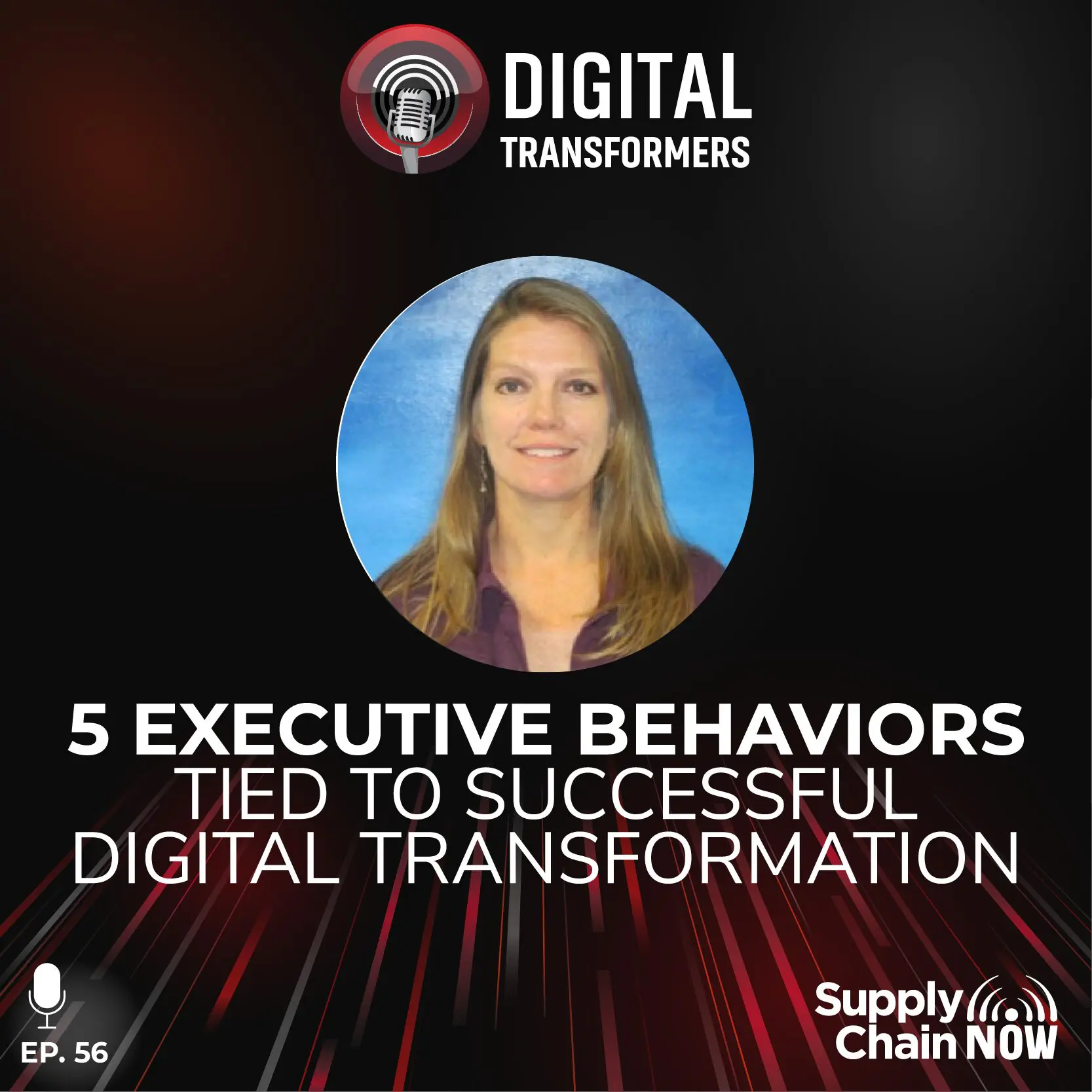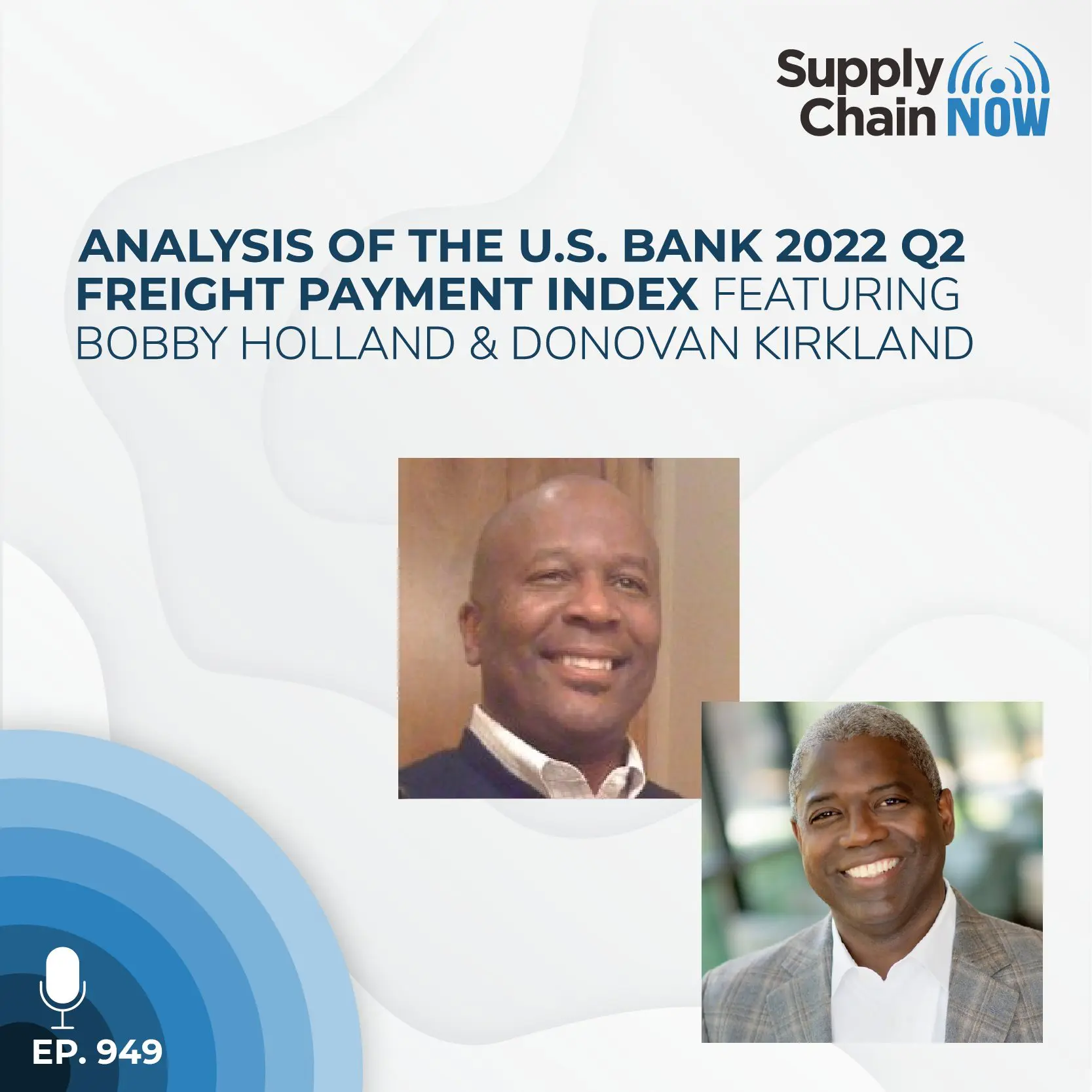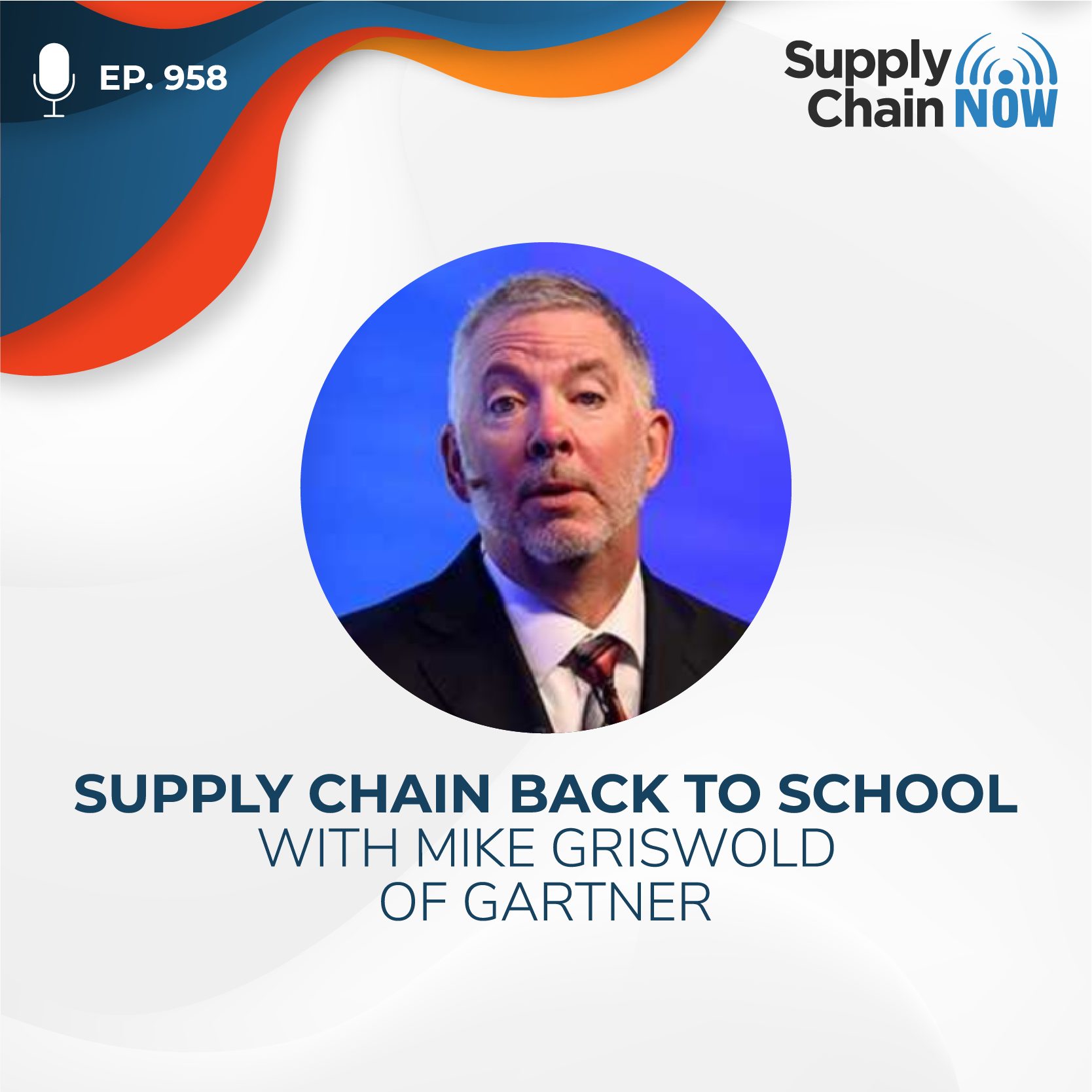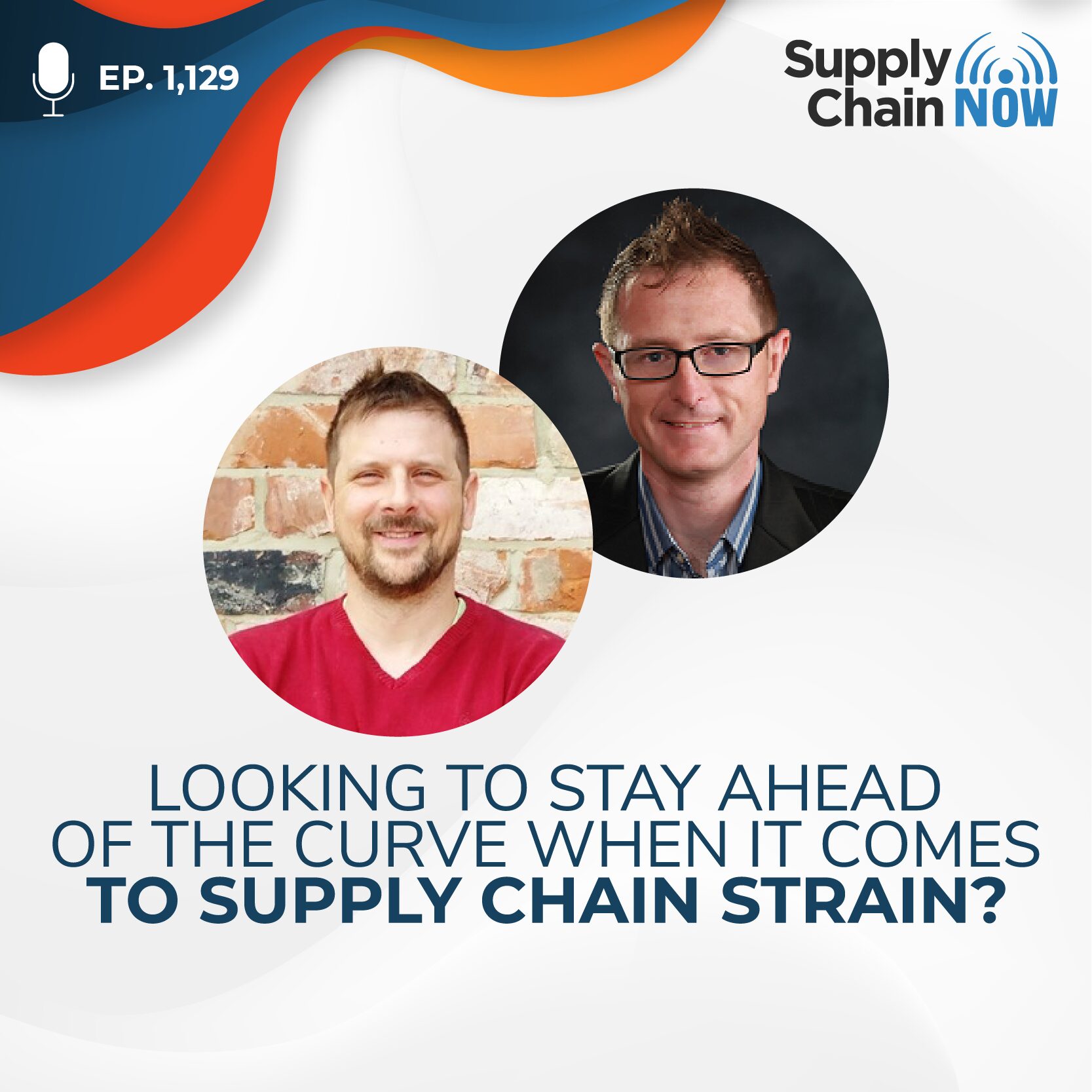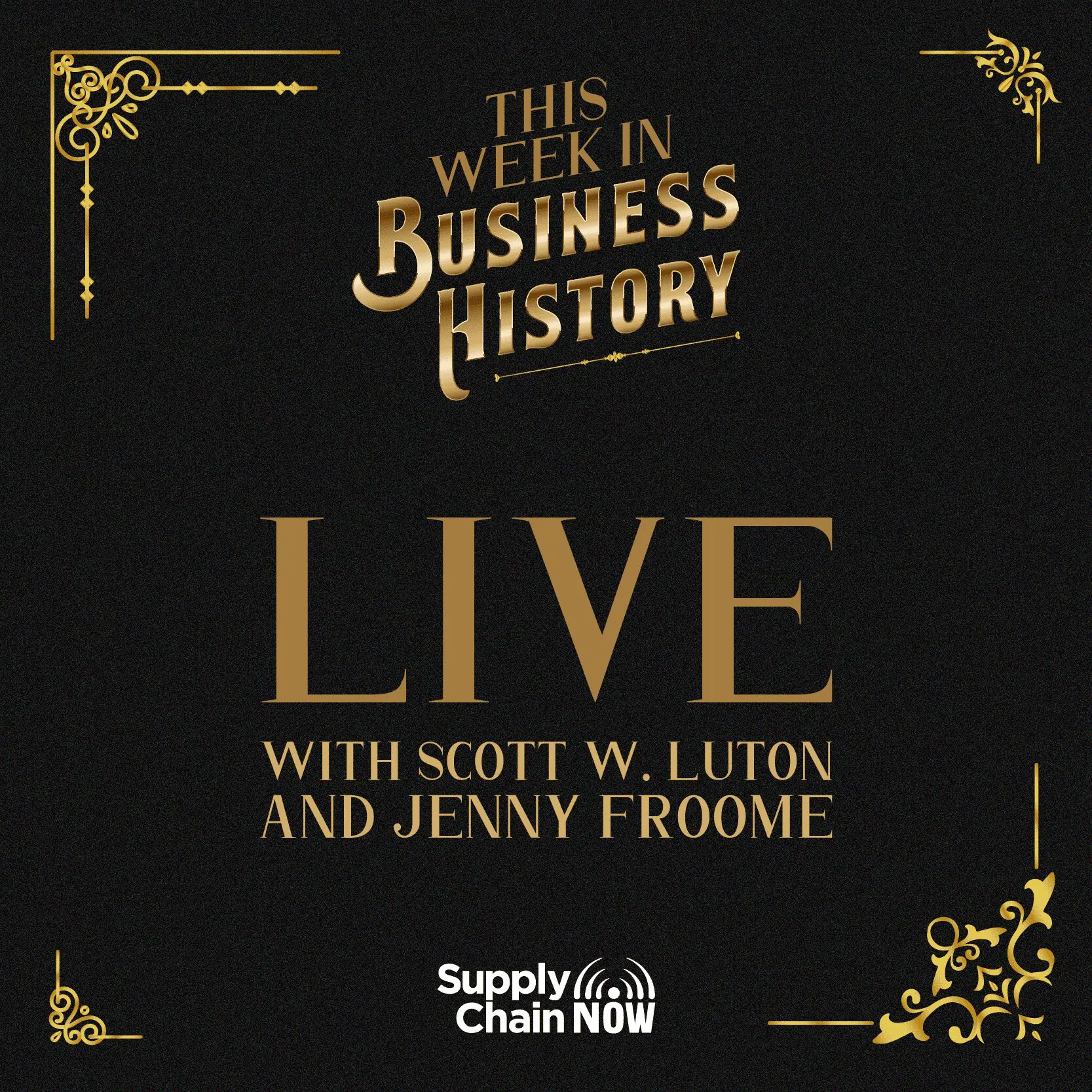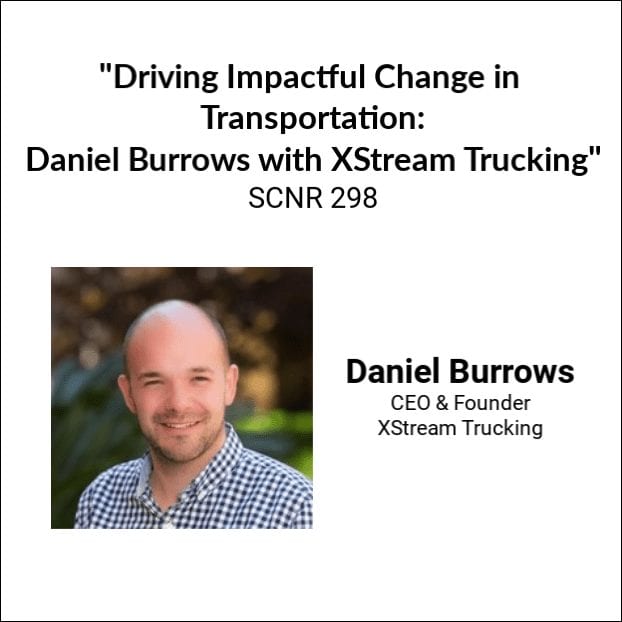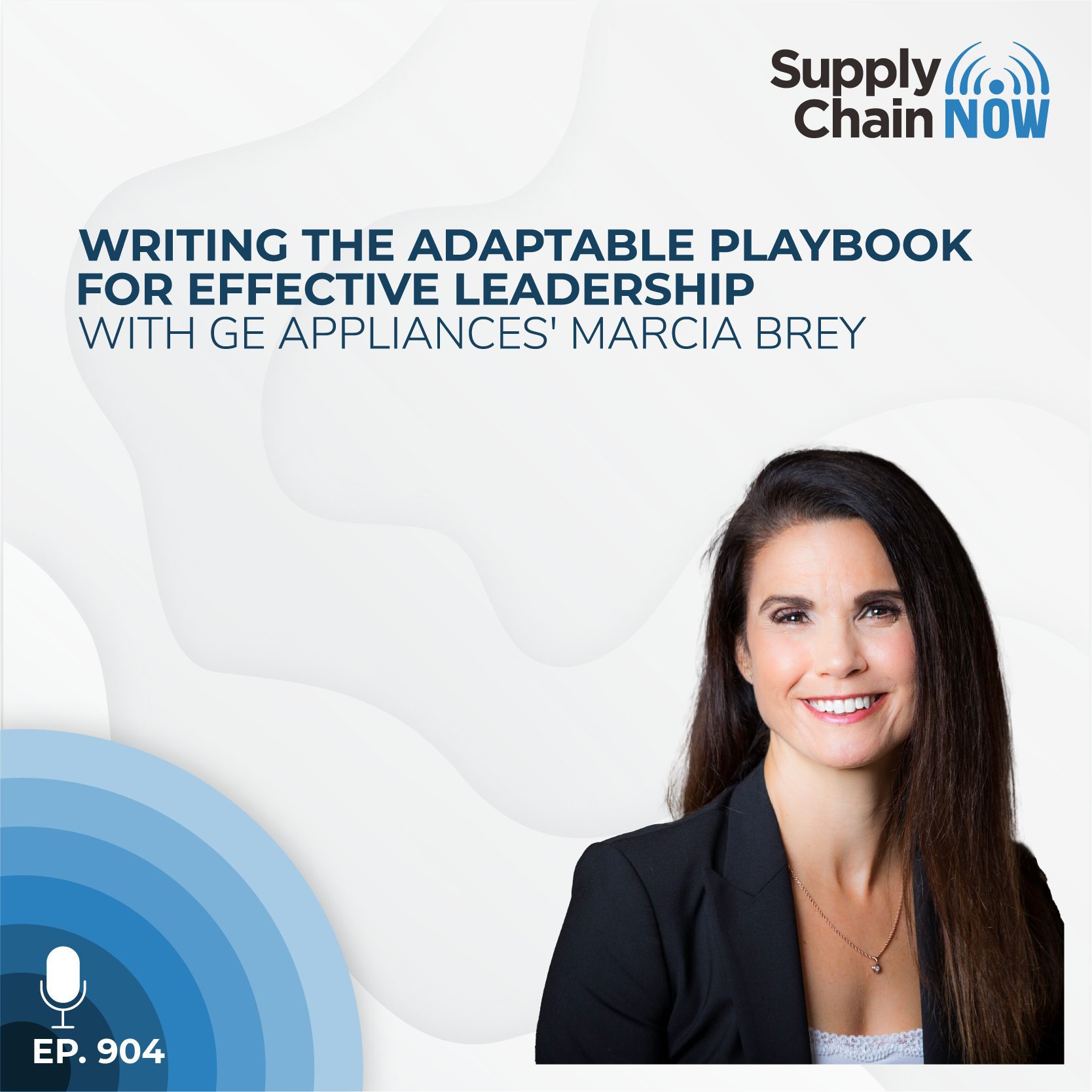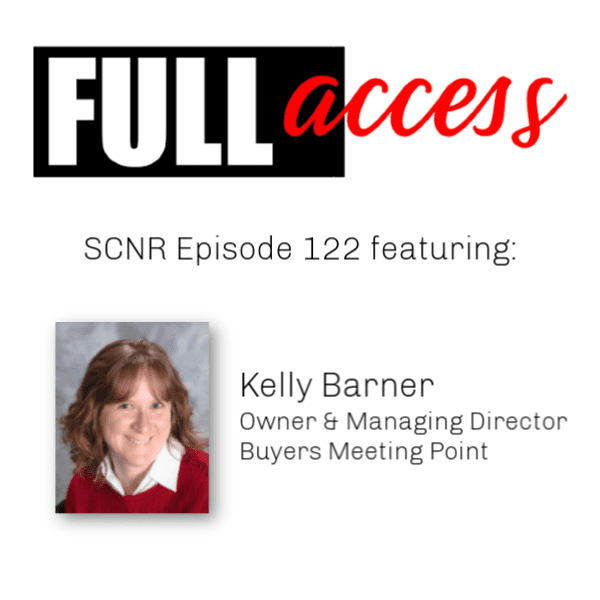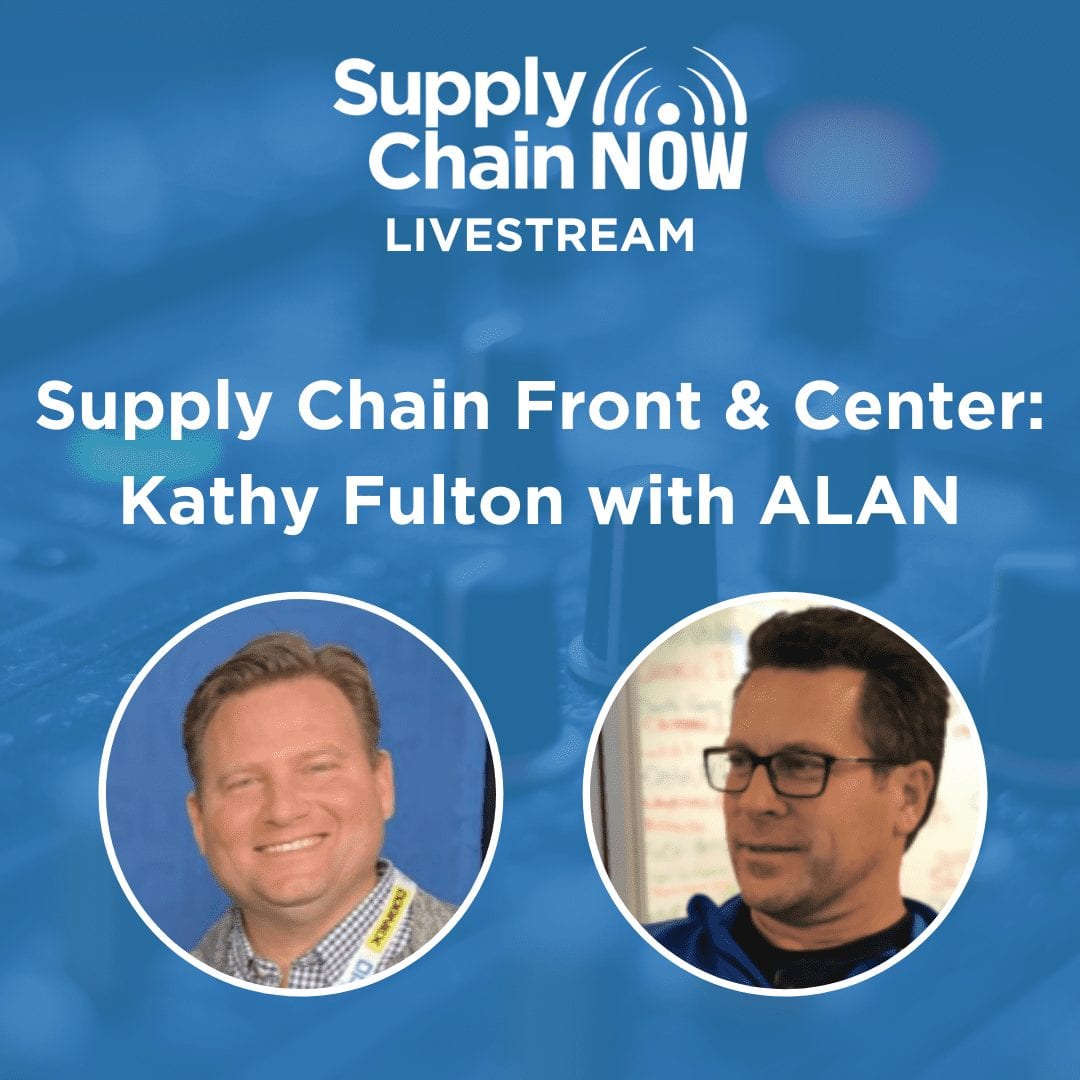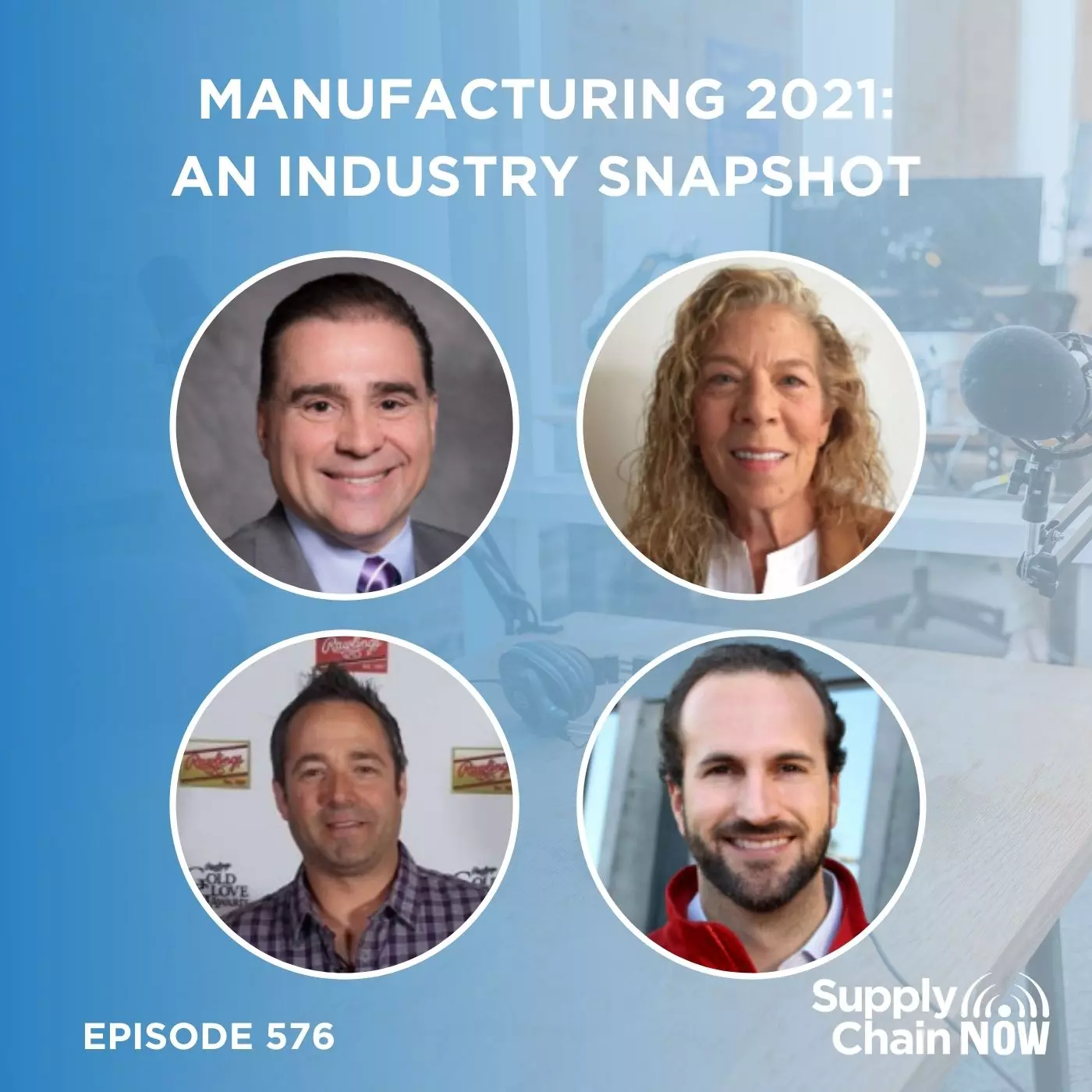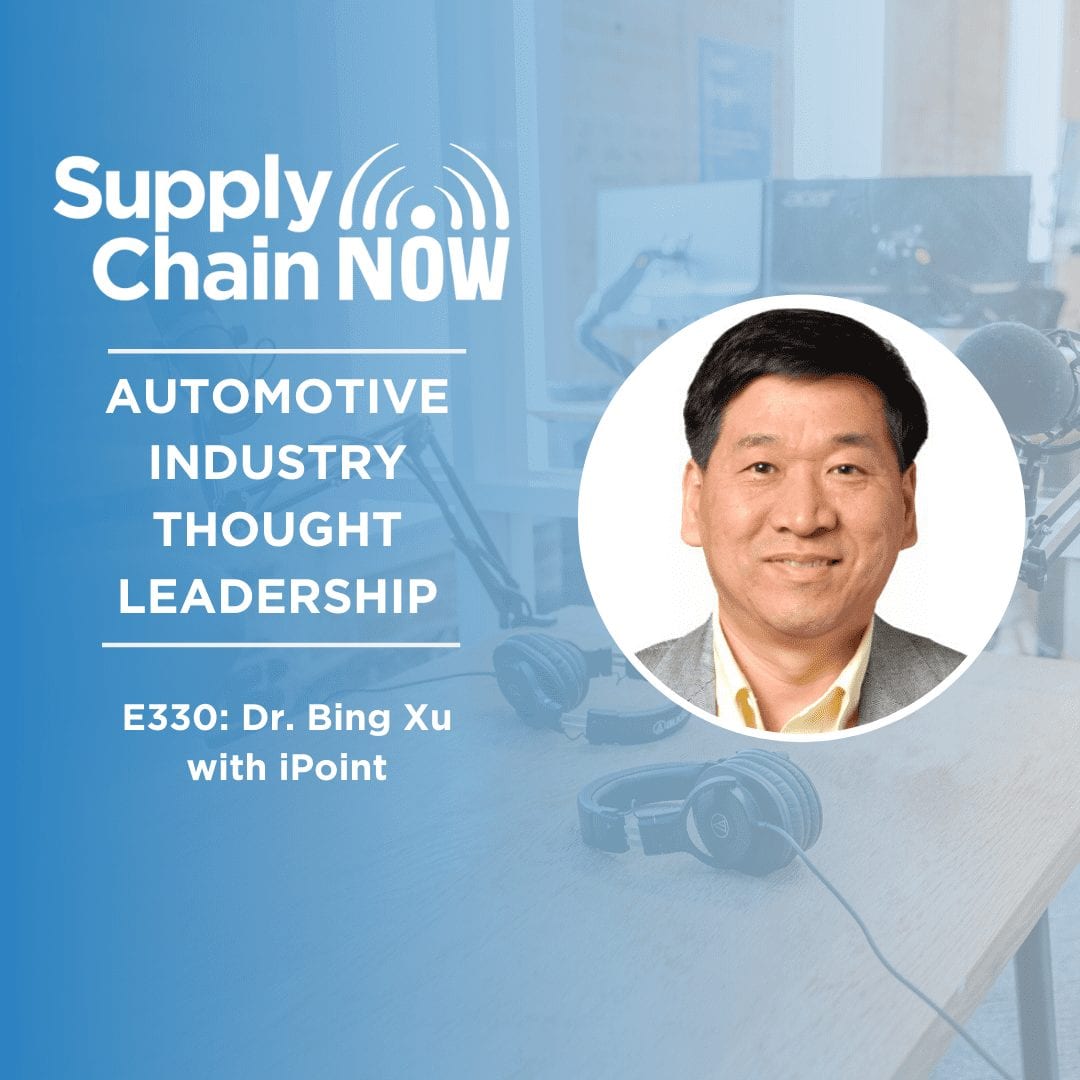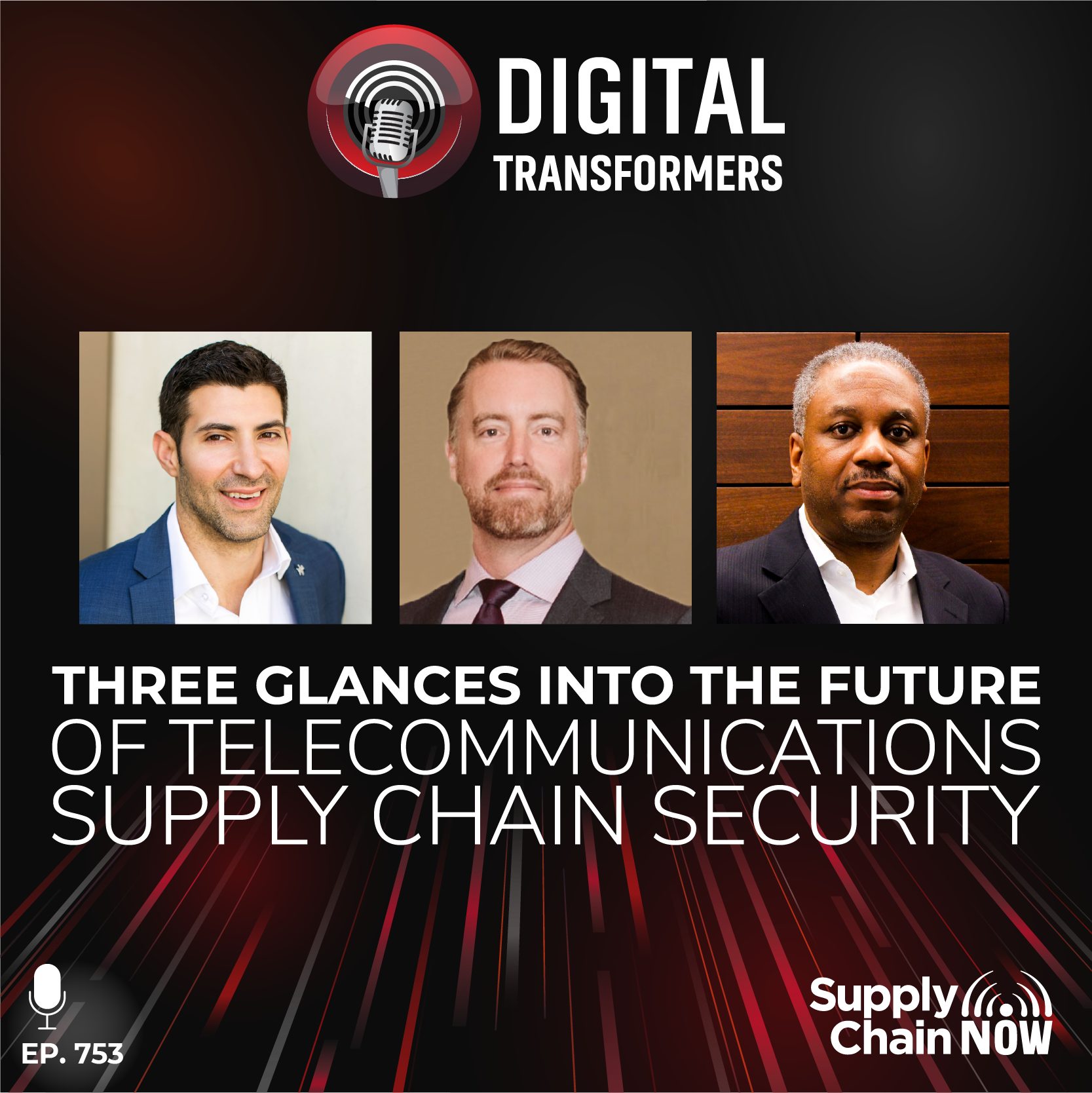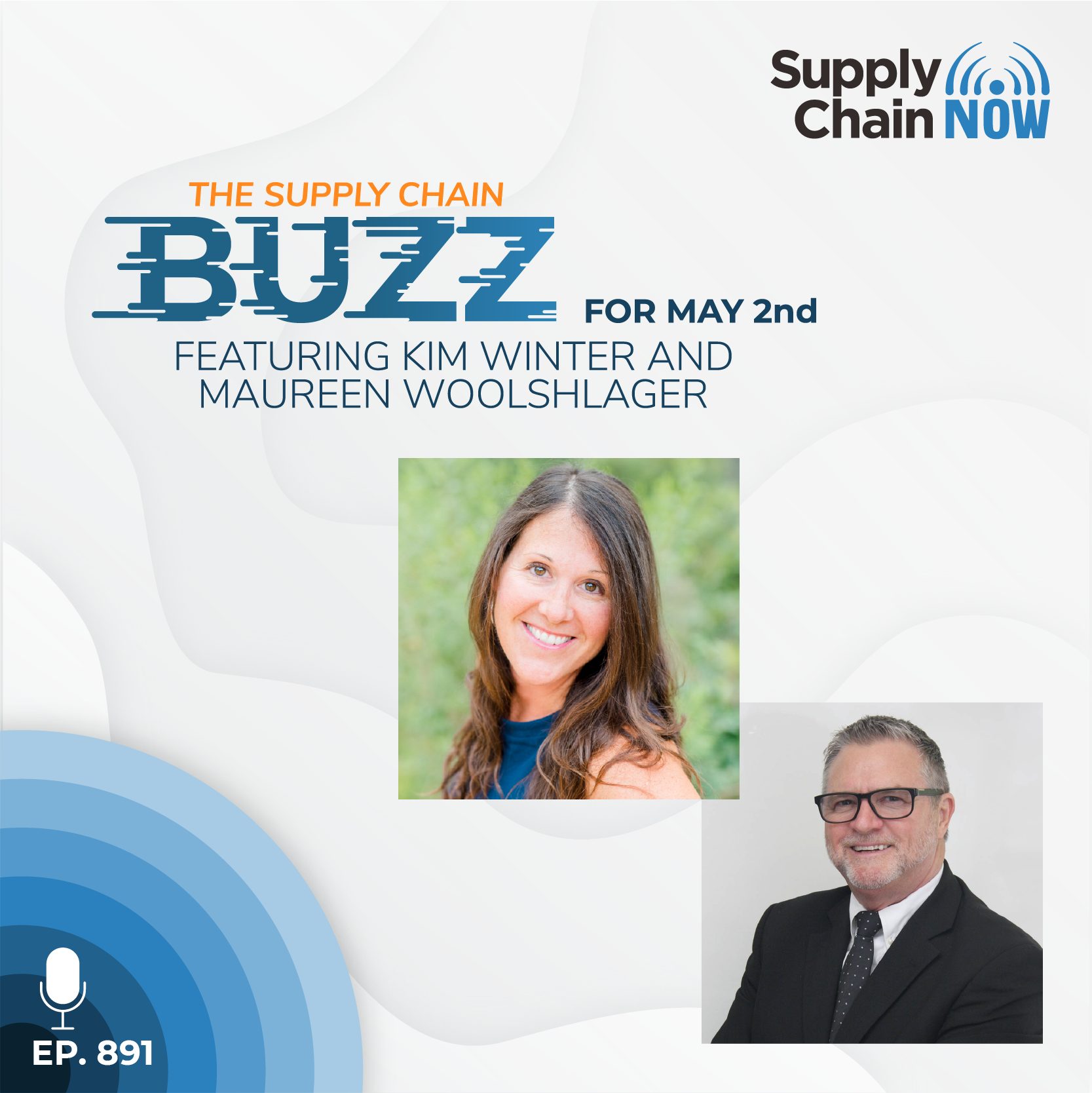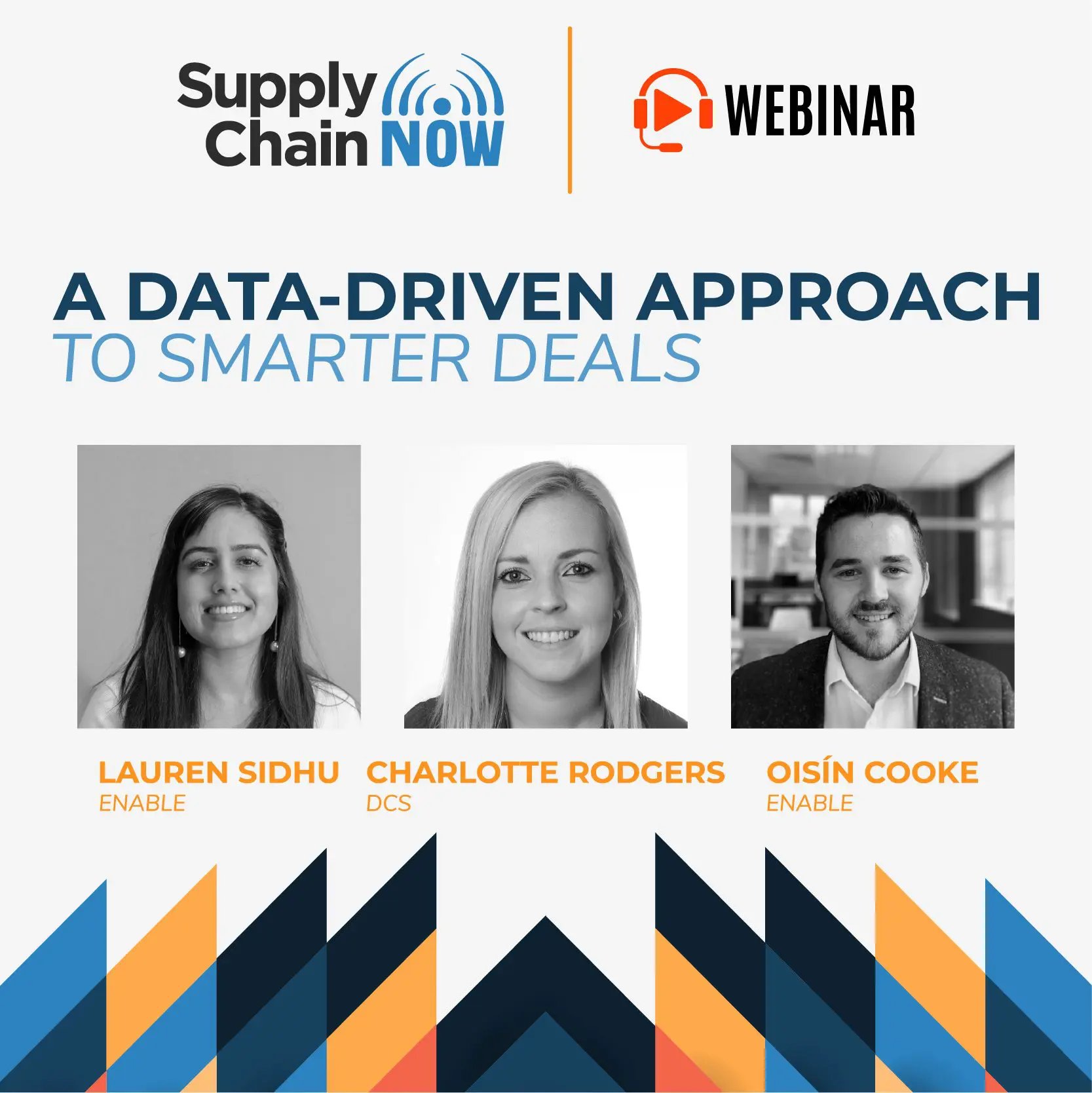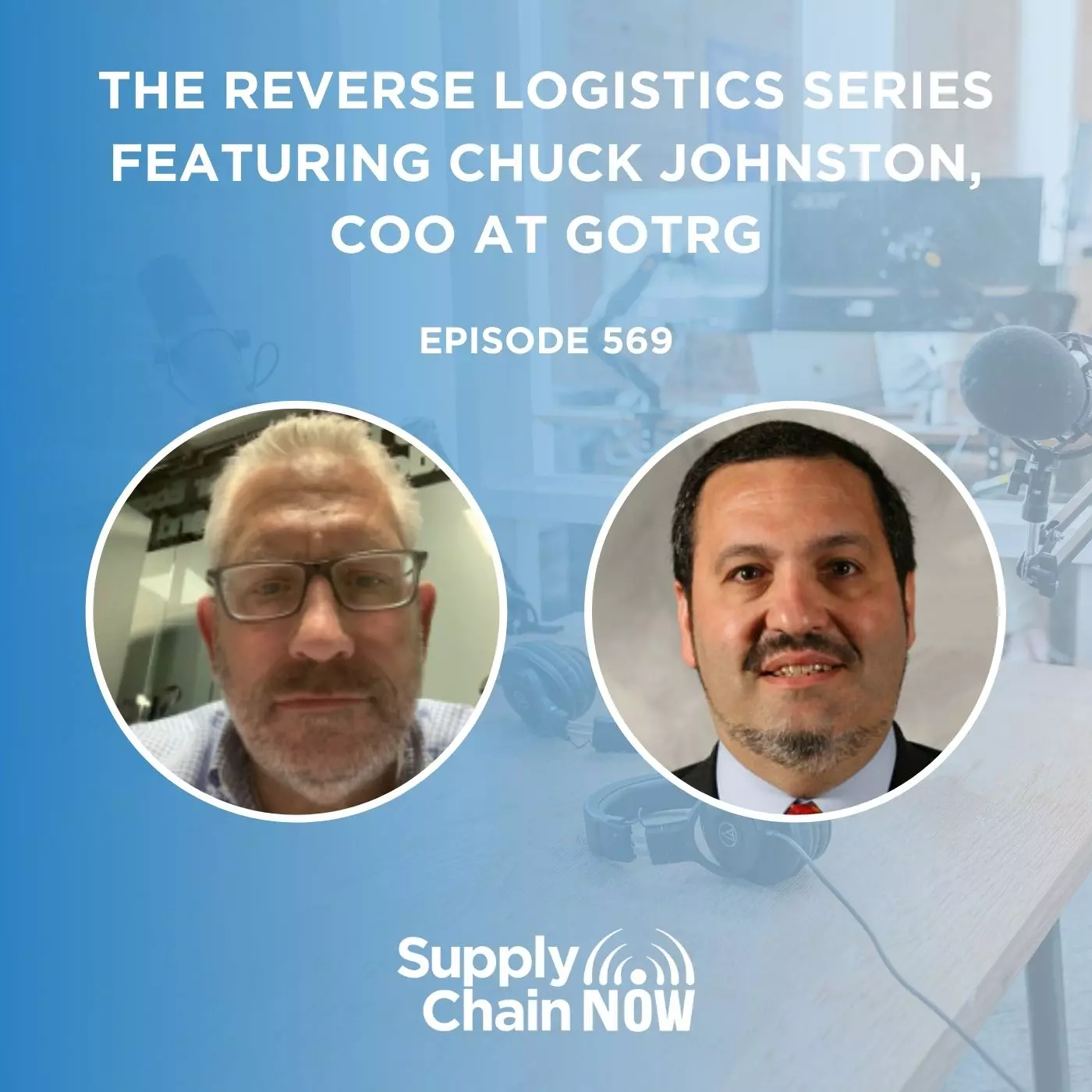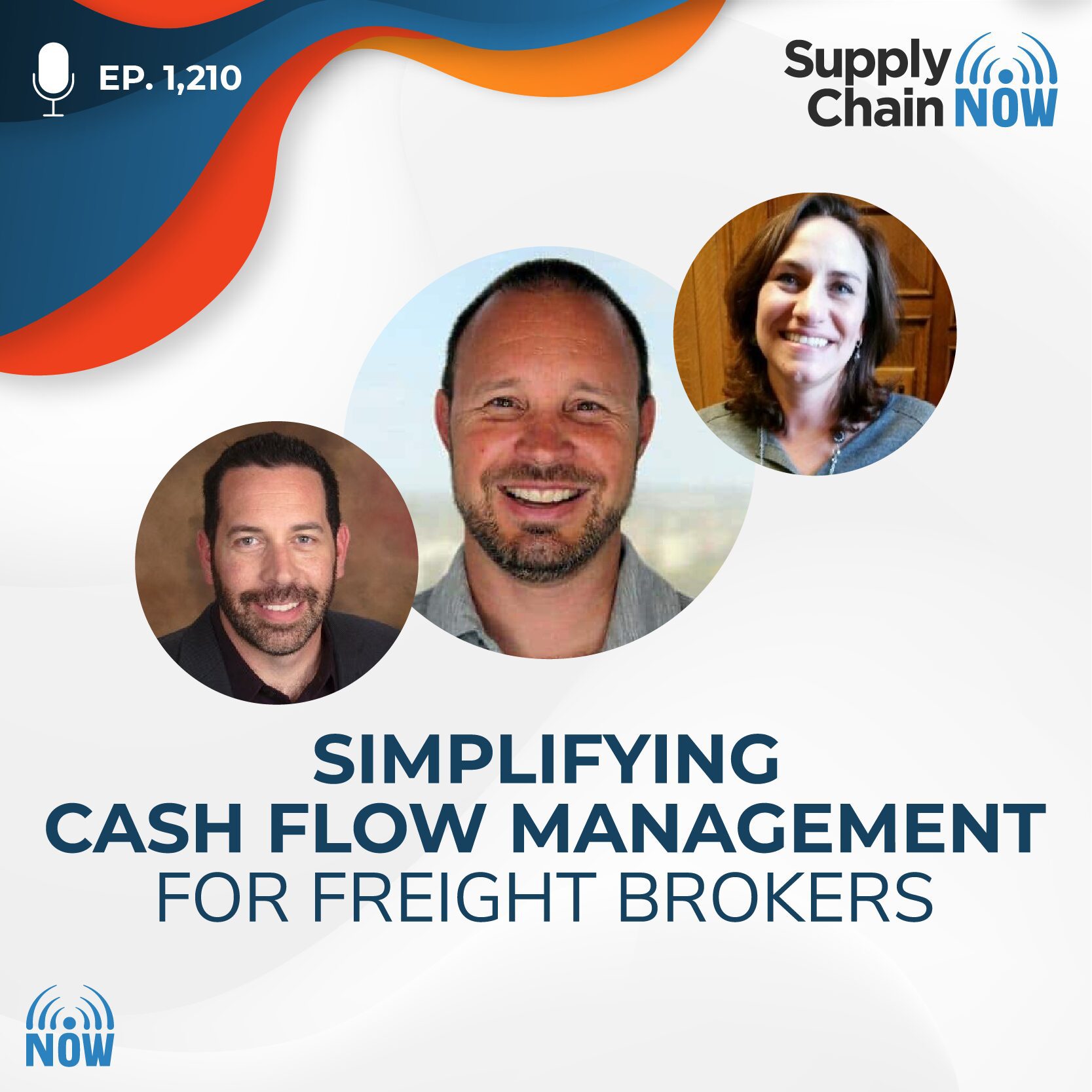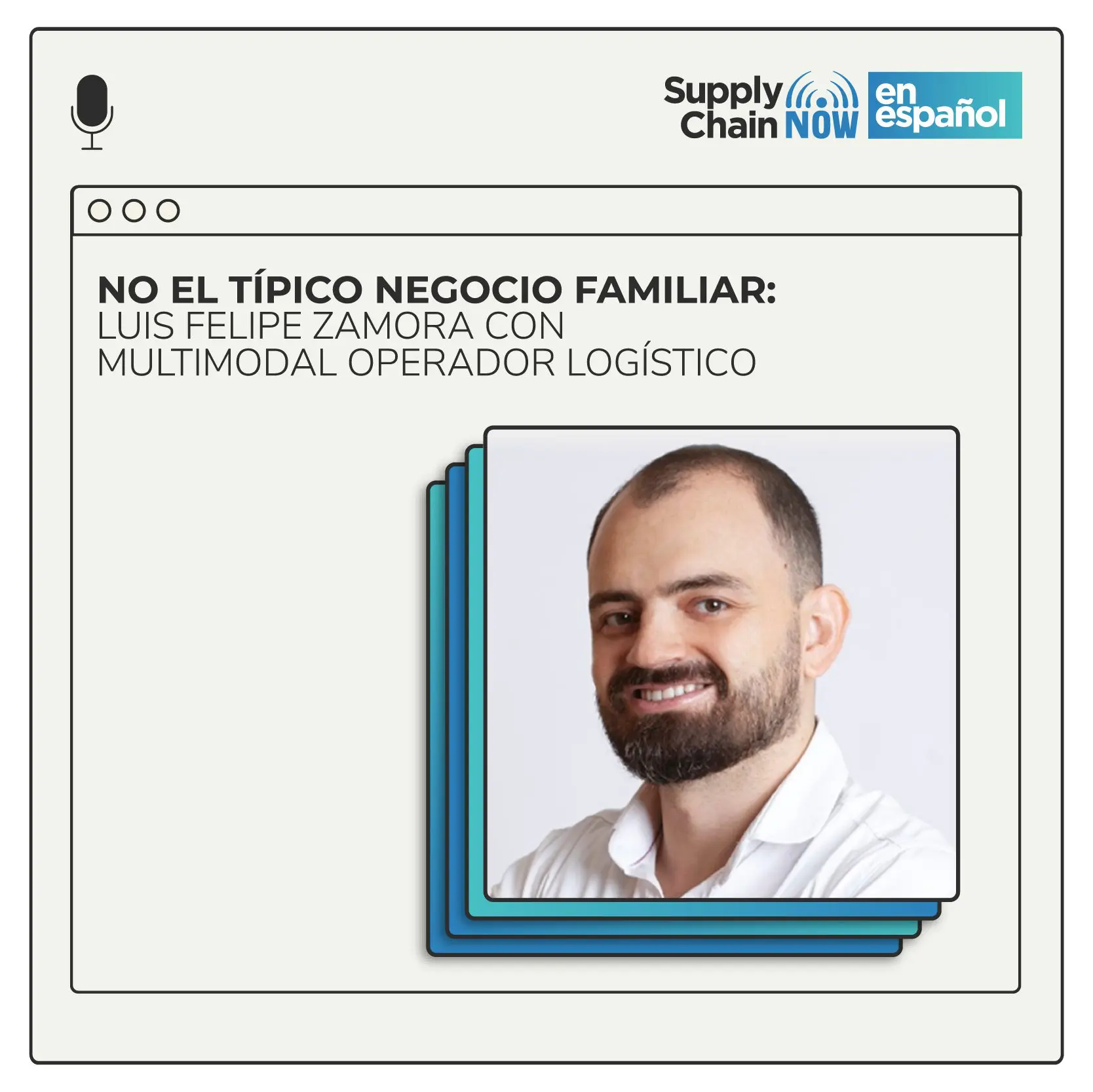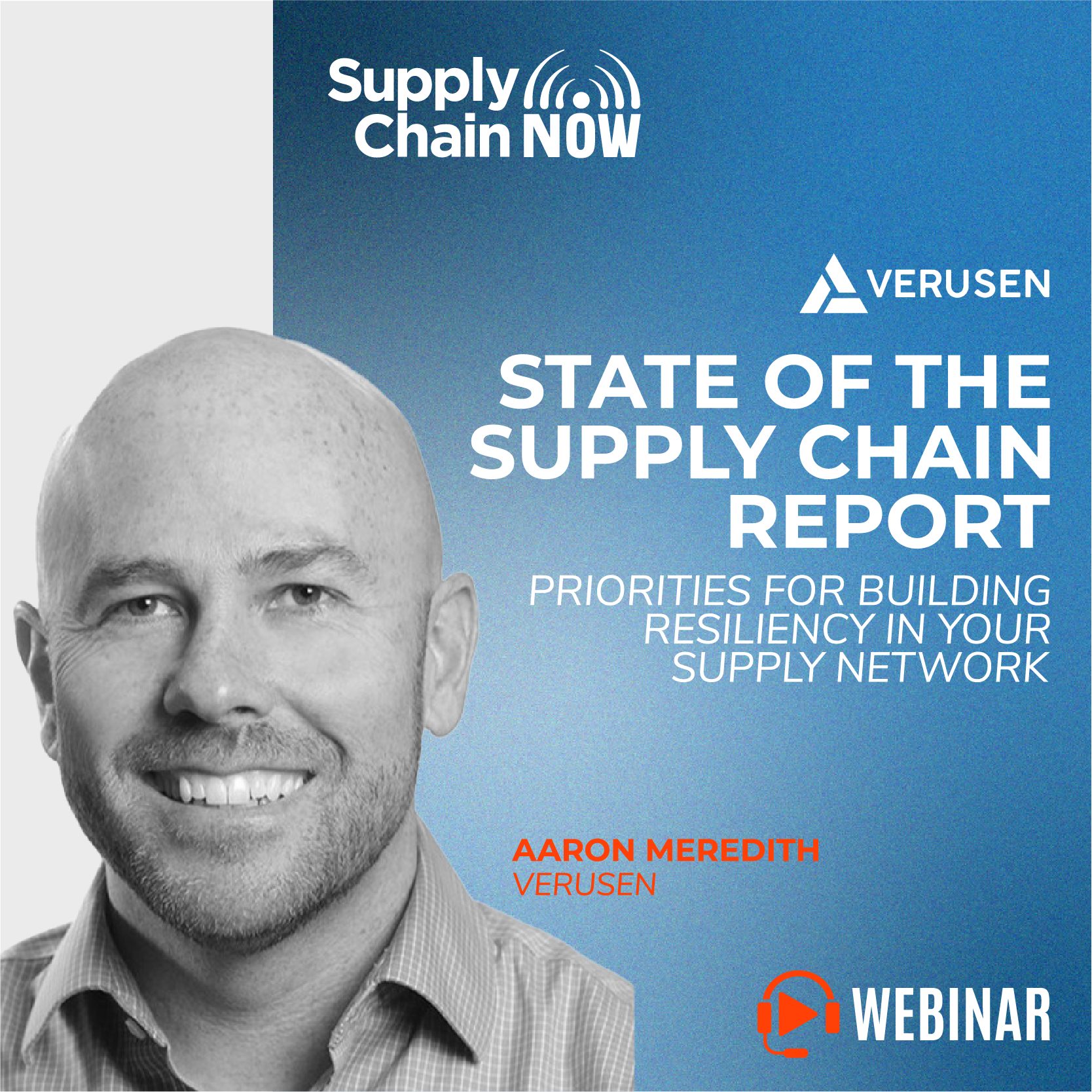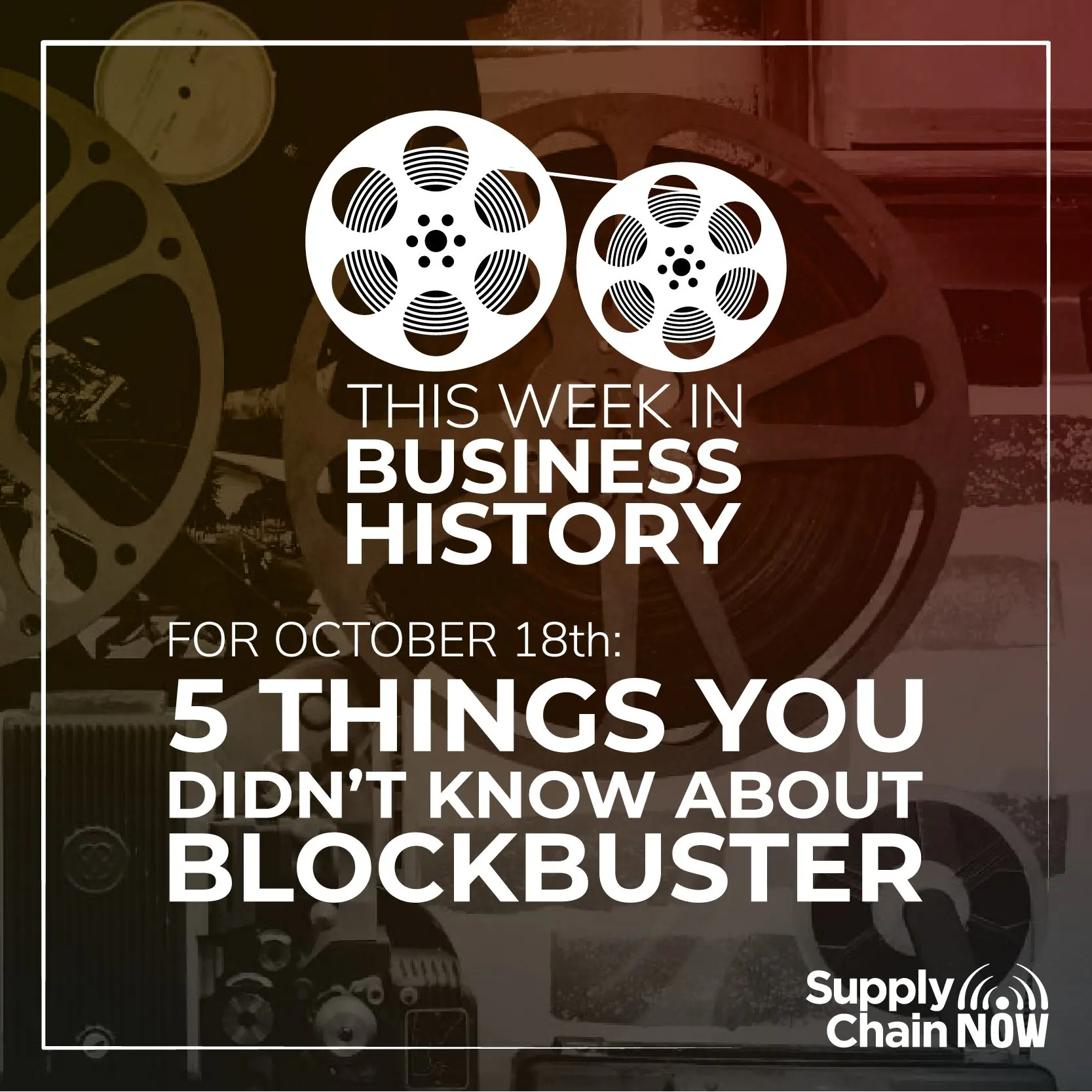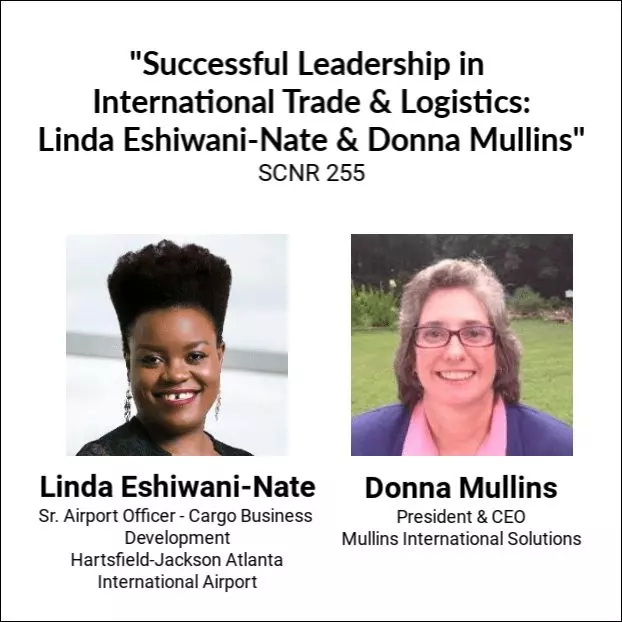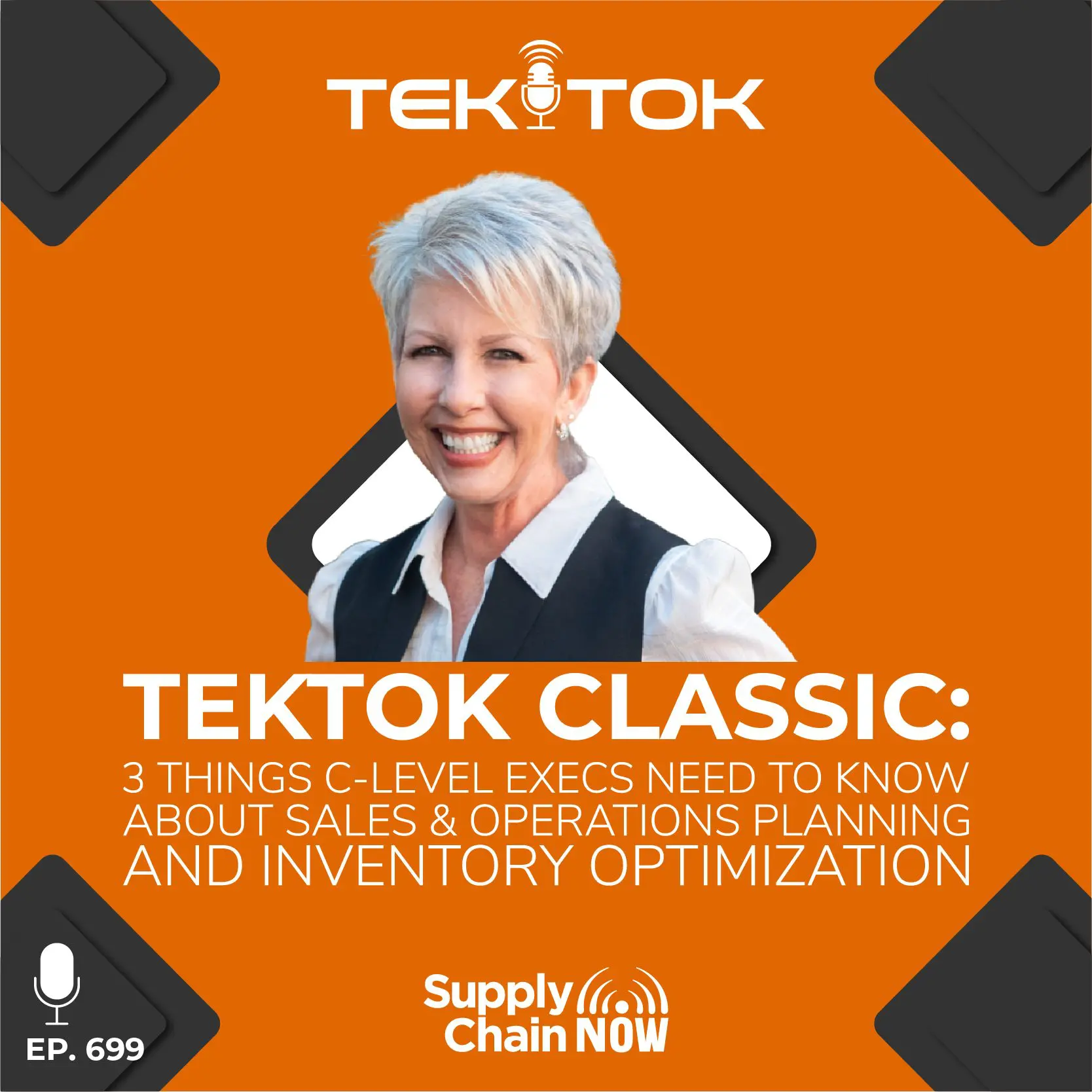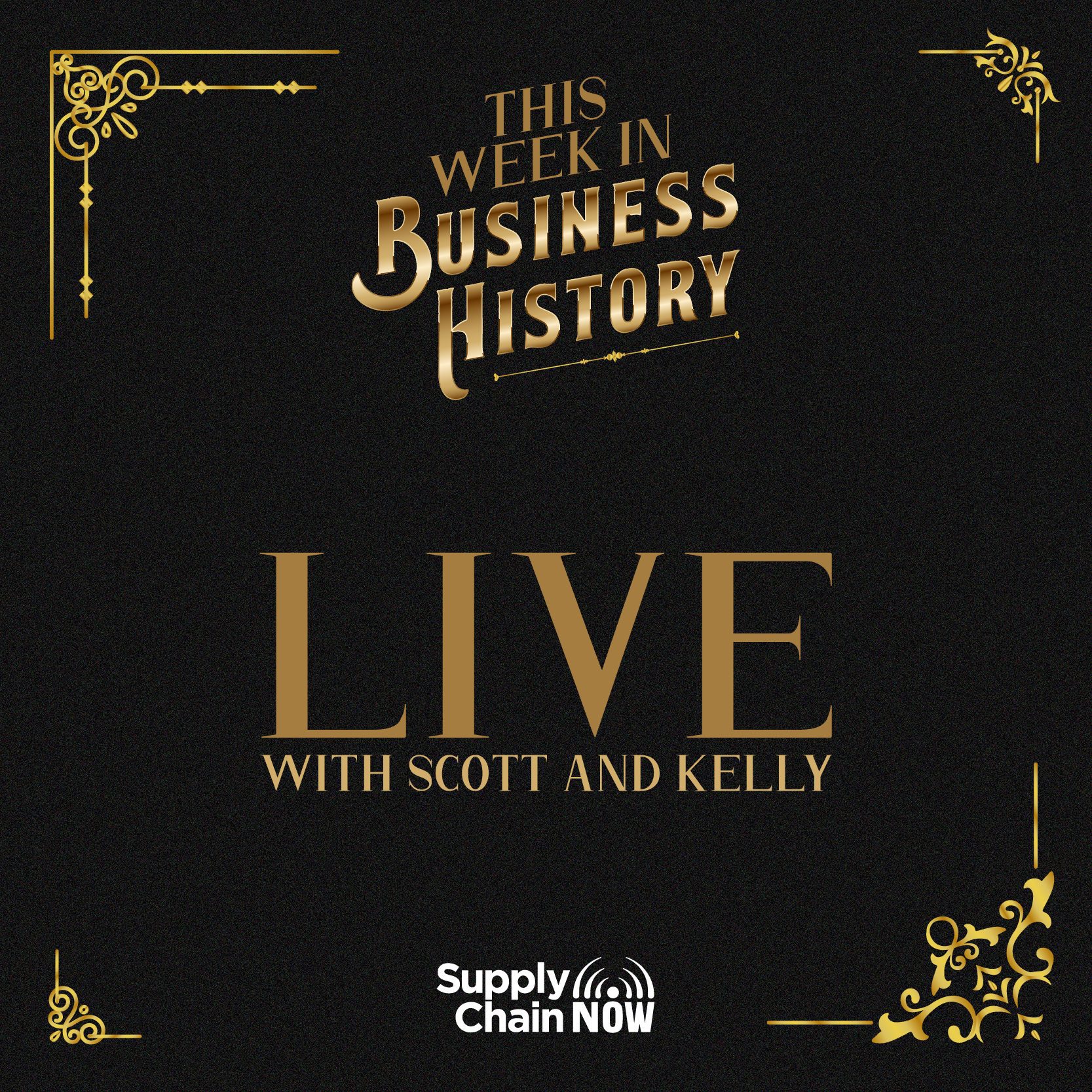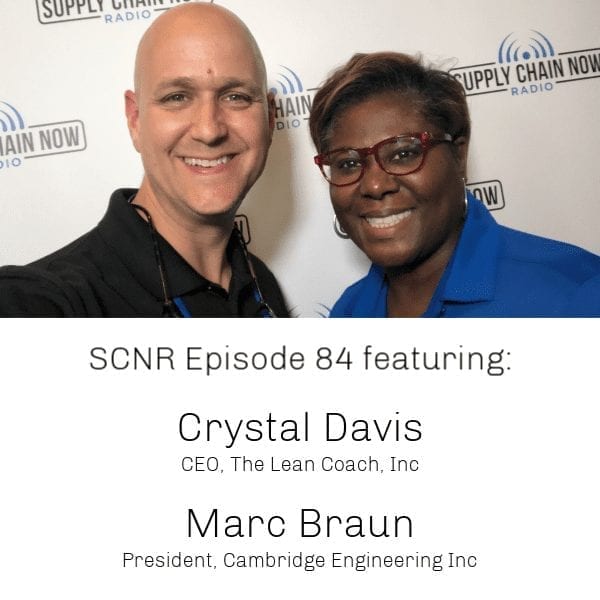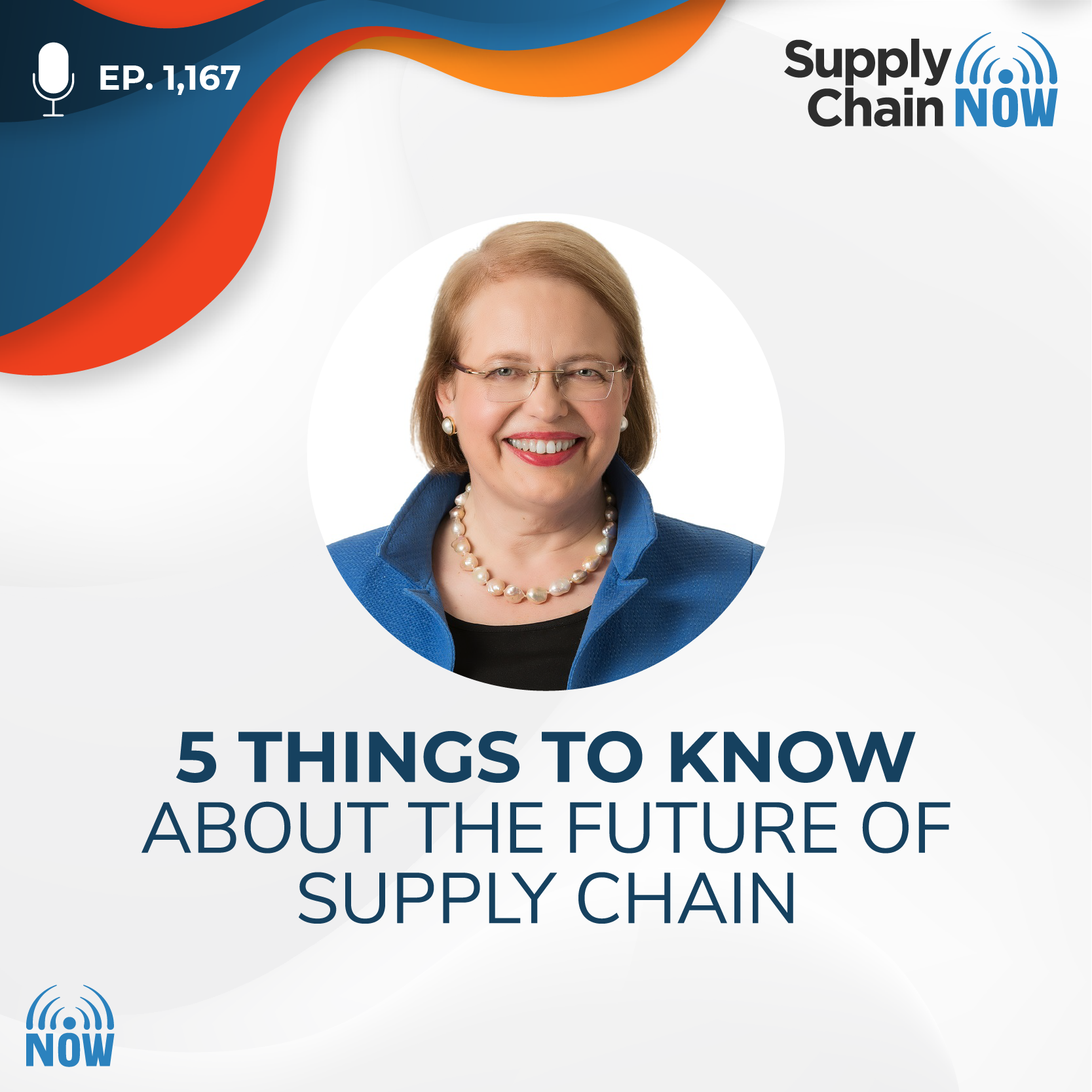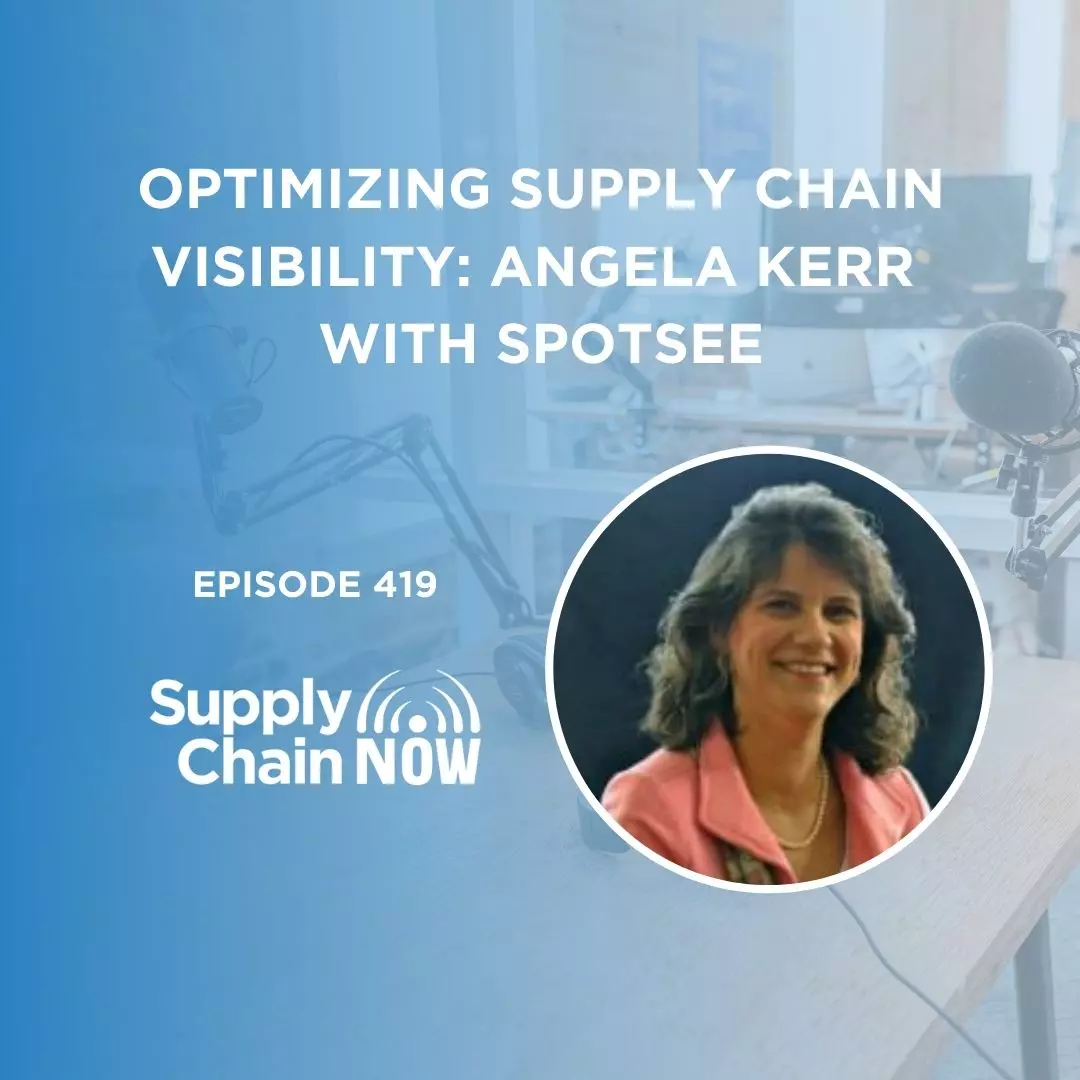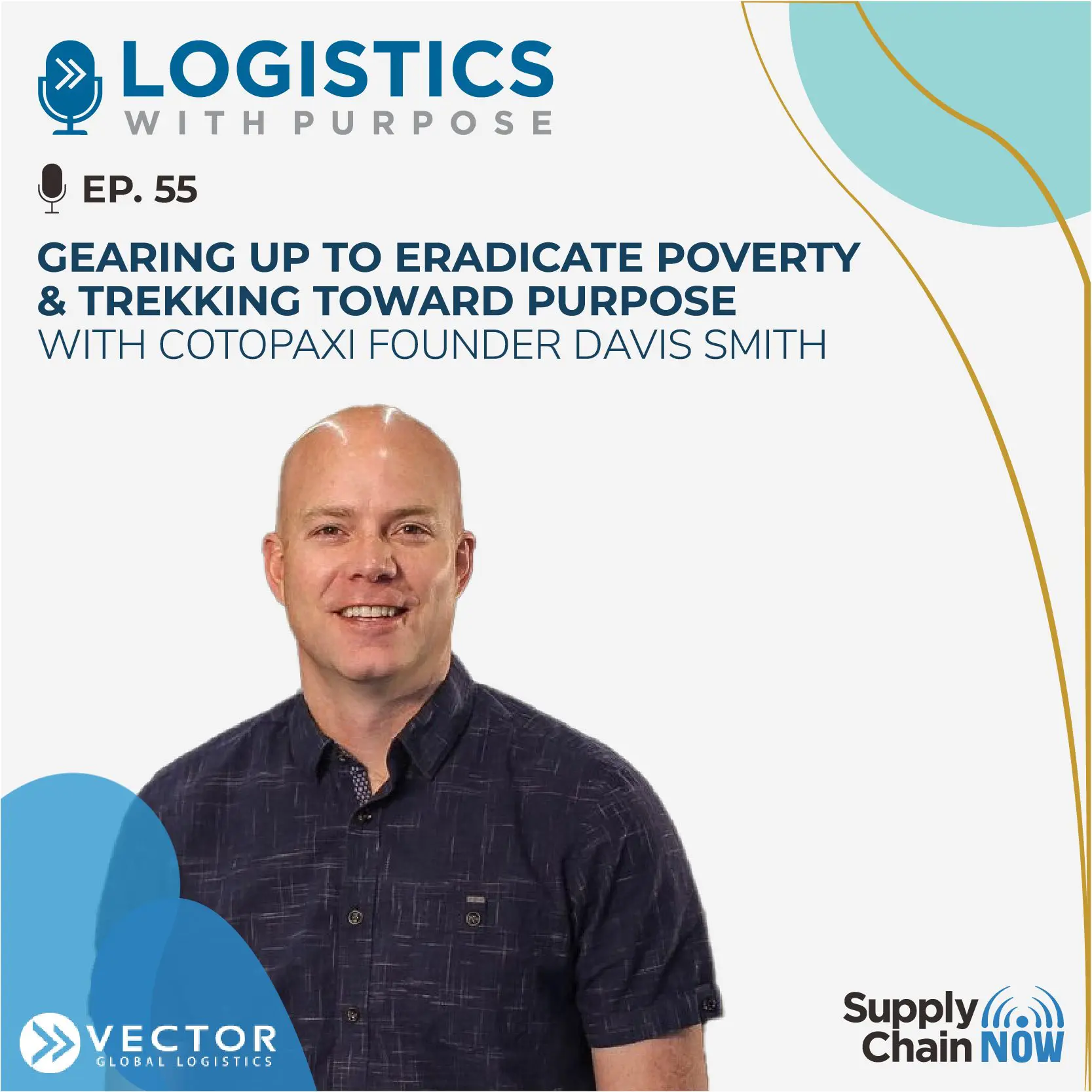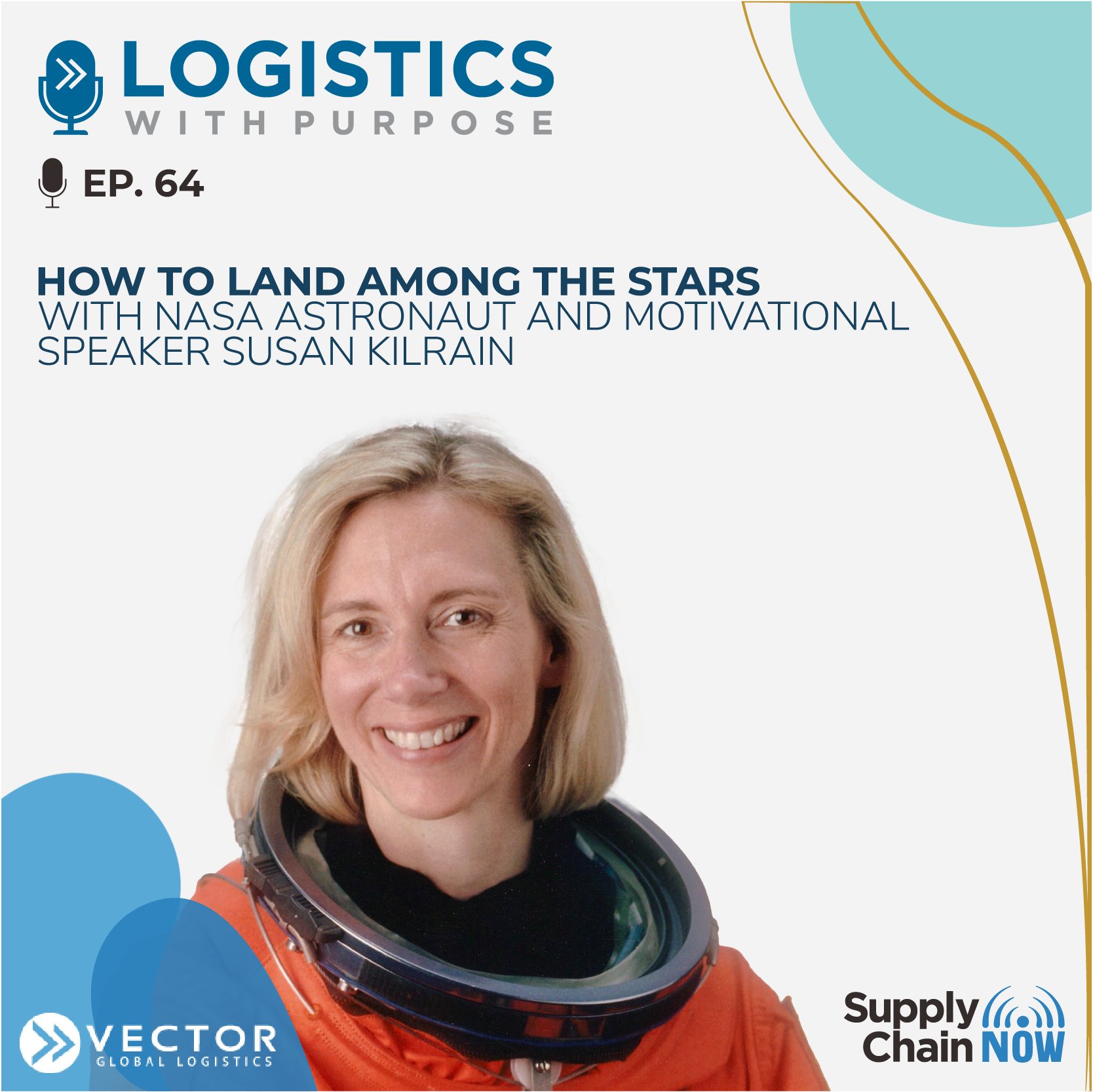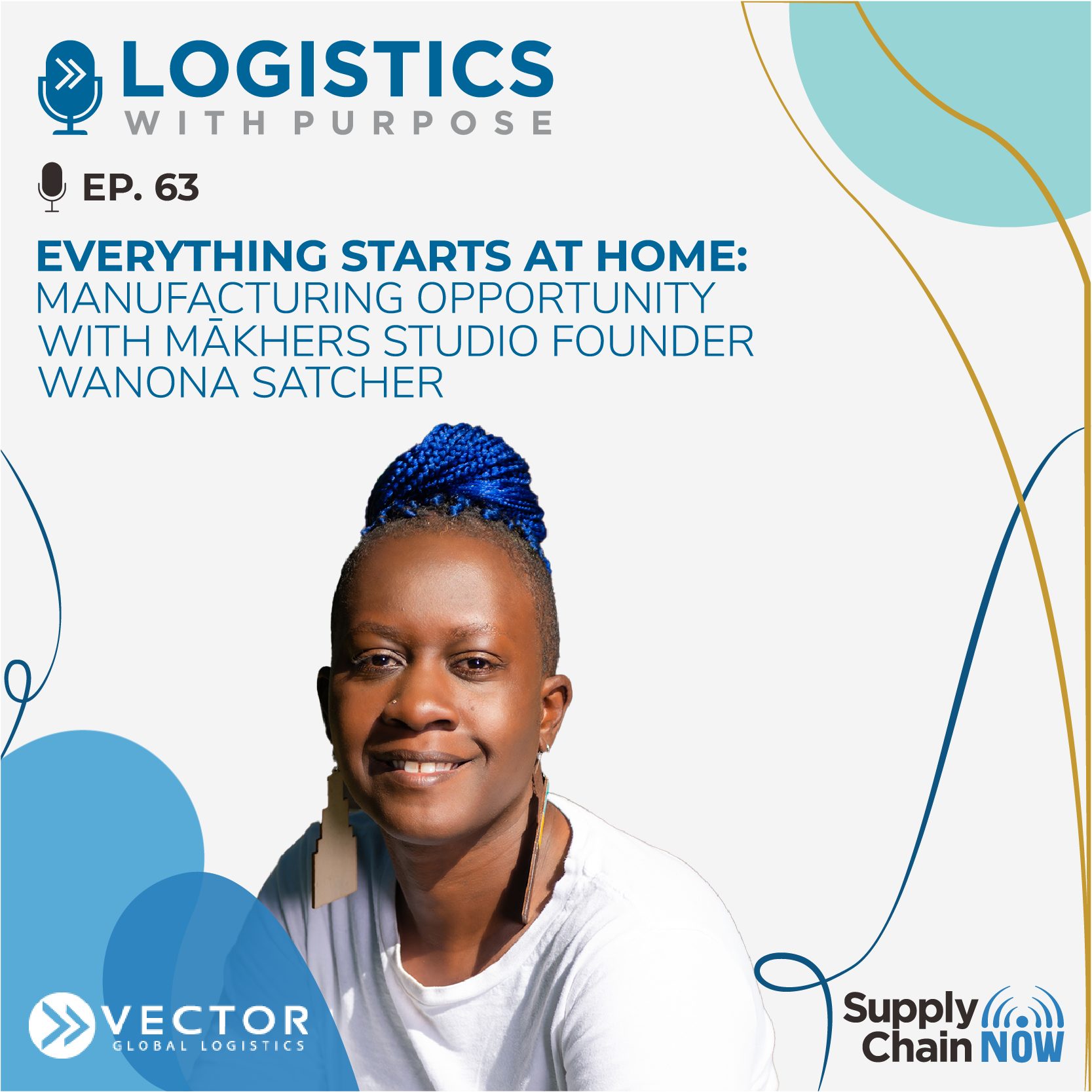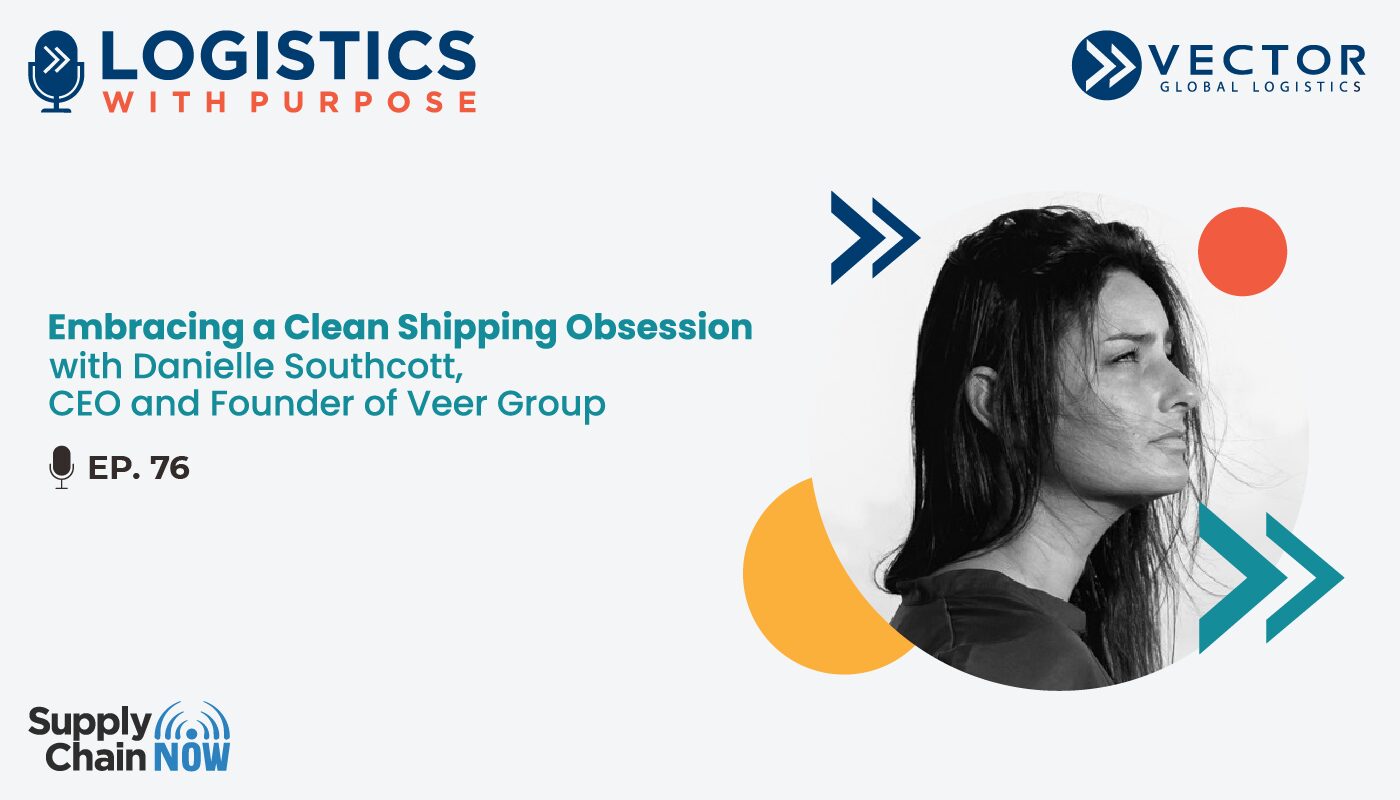
When we say the words ‘clean shipping,’ that can mean anything from scrubbers to a slightly different fuel, slow steaming to planting trees. So, you're not just adjusting your behavior, you're offsetting.
-Danielle Southcott, CEO and Founder of Veer Group
Episode Summary
Danielle Southcott started thinking about the benefits of clean shipping while working in different roles in the maritime industry. What frustrated her was the challenge of proving the financial viability of the model. In fact, as she explains, she became obsessed with the idea that clean shipping could support a for-profit business model. In this episode of Logistics with Purpose, Danielle joins hosts Enrique Alvarez and Kristi Porter to talk about the progress she has seen and the work that remains to be done.
Episode Transcript
Intro/Outro (00:02):
Welcome to Logistics with Purpose presented by Vector Global Logistics in partnership with Supply Chain. Now we spotlight and celebrate organizations who are dedicated to creating a positive impact. Join us for this behind the scenes glimpse of the origin stories change, making progress, and future plans of organizations who are actively making a difference. Our goal isn’t just to entertain you, but to inspire you to go out and change the world. And now here’s today’s episode of Logistics with Purpose.
Enrique Alvarez (00:34):
Good Day. My name’s Enrique Alvarez, and welcome everyone to another amazing episode of Logistics with Purpose. Christie, good morning. How are you doing today?
Kristi Porter (00:42):
Good morning. I am still waking up, but I know this podcast is going to wake me up even further because we have such an exciting guest to talk to today and just doing really innovative things for people in our industry. So I’m excited to chat with her. And I have my coffee and I’m ready to go.
Enrique Alvarez (00:58):
It’s, uh, it’s usually amazing to actually interview people, but in particular today, you’re right, it’s very innovative, creative, uh, out of the box thinker, like could probably disrupt the industry if she’s not already doing that. So now I’m happy to people
Kristi Porter (01:11):
Gonna talk her, talk about her website
Enrique Alvarez (01:13):
For sure. Well, go ahead, give us a make the, make the honors, uh, Christie introducing our guest today.
Kristi Porter (01:18):
I will. And yes, p plug for her website. We both had a lot of fun just scrolling around so everybody at the end of the show, when we tell you about her, then you’re gonna have to go check out her website and take a look and see what we mean. Um, so I’ll give that little teaser, but in the meantime, we are excited to welcome Danielle Southcott, who is the founder and c e o of Veer Group to the show. Danielle, thank you so much for being here with us.
Danielle Southcott (01:40):
Thank you both. I’m very grateful to be here and to be able to share what we’re up to with beer. Uh, it’s not the morning where I am, but I also have a coffee <laugh>, so yeah. Thank you both.
Kristi Porter (01:51):
As long as you have coffee, you’re good to go. <laugh>. Yeah. Well, let’s start out, before we get into beer and all the really cool things that you’re doing there, um, tell us a little bit about, because you, you have a really fascinating background that completely leads up to what you’re doing now. So tell us a little bit about your childhood and growing up and, um, yeah, just sort of you as an early in your early years.
Danielle Southcott (02:13):
Sure. So, again, my name is Danielle, and I’m originally from Lake Ontario, which is the Great Lakes region, uh, on the Canadian side. So I’m from north of Kingston, Ontario. And I grew up, uh, really just outside like a normal kid. We were in the countryside and I remember planting trees with my mom and that my dad, he works for the Ministry of Environment, so Oh, while it wasn’t really that we were such an environmental family, there were, uh, themes of that throughout my life. Yeah, I started sailing on the Brig Andeen St. Lawrence two when I was 13 years old, which is an amazing youth sale training program. It’s like a summer camp, adventure summer camp out of Kingston. And ever since I sailed on the St. Lawrence two, I knew that sailing and tall ships and square rig in particular were really something that I was passionate about. So yeah, I mean, um, there’s a lot to share. So yeah,
Enrique Alvarez (03:10):
It sounds amazing. And just for all of us may include it that don’t know what a square sales, right? Yeah. Ship is <laugh>. What does that mean?
Danielle Southcott (03:18):
So square week sailing vessels or traditional sailing ships would be, uh, just to make it really easy, but don’t equate This is if you picture pirates to the Caribbean, that’s
Kristi Porter (03:30):
What I was picturing.
Danielle Southcott (03:30):
Yeah. But they’re not pirates and they,
Kristi Porter (03:34):
That’s a little bit the let down. Yeah.
Danielle Southcott (03:36):
<laugh>. Well, I did get to work on the set part for the Caribbean, so Oh
Kristi Porter (03:39):
My gosh. Okay. We’re gonna have to talk about
Danielle Southcott (03:41):
That, that let down <laugh> <laugh>, but the traditional ships and square rig vessels, so when we say square rig, we just mean the sail. It’s like a square. So that can go as far back as Viking age up until the, the end of that era, you say, was around 1920 to 1930s. So that was even less than a hundred years ago. So it had a very long span of when you used the word square rig in a broad sense.
Enrique Alvarez (04:06):
Well, it sounds, it sounds like you had an incredible, uh, childhood sailing Yeah. And enjoying nature. Uh, do you, is there any kind of particular kind of, uh, experience back then that inspire you or was starting to shape the person that you are now and the kind of things that you’re now doing?
Danielle Southcott (04:23):
I mean, I have to say that there was something about the way I was raised. Maybe it was just being in the outdoors, maybe just climbing trees, I really don’t know. But there was a little bit of a fearlessness, and for many years I took that fearlessness that I have. I took it for granted. I assumed that everybody believed that they could achieve anything, or everybody could just believe when they pick something, then they can go for it. And everybody can, but not everybody believes in themselves and not everybody believes that they can. And so I would say that it’s only been relatively recently that I’ve, I’ve realized that that’s a little bit different about me, is that I always just assumed that I could do everything. And of course, there’s some privilege that comes with that inherent privilege that I, I’m born with. But, um, I try to inspire others and let them know that if they set their mind to something, it’s very likely possible that they can achieve it. And, uh, I think, I hope I answered your question somehow with that.
Kristi Porter (05:19):
Yeah. I think that’s a beautiful aspect too that so many of us grow out of, unfortunately, too. That’s a unique, um, and wonderful facet that you’ve kept with you. And yeah, I think it definitely lends to the inspiration of what you’re doing now and, and where you’ve come from. But of course, before I ask you about your professional career, I now have to ask you about Pirates of the Caribbean, <laugh>. Of course. So what was that about? What did you do with them? How did you get hooked up with that project?
Danielle Southcott (05:45):
Yeah, so I, one of the companies I founded, uh, this was now years ago, I think it might have been 2012, was called Top Sale Rigging. And we had a, a, uh, traditional rigging company. So that was doing rope work on wire splices and working with the sales. So actually fabricating all of the sales and ringing that you would picture. Oh, it was really fun. Very, very hands on. Very tactile. Yeah. And, uh, so then my company was brought on because they were doing a segment of one of the Pirate’s movies in British Columbia, Canada. So they wanted to bring a bunch of Canadian, uh, talent on board. So we were able to do some of the ropes and, and sales and this sort of thing. Very cool. Uh, for pirates, and yeah, it was, it was great. <laugh>.
Kristi Porter (06:32):
That’s fantastic. Um, I, I love that. What a unique experience to have. Okay. So let’s talk about your professional career, because it is also very impressive. So talk about university and what did those early career, uh, choices look like?
Danielle Southcott (06:46):
Yeah. Well, it’s interesting. I, I didn’t, uh, well, I did go to university for about a year. I went to University of Toronto for aboriginal studies and forestry. Wow. Uh, but I actually dropped out and ran away to sea on a schooner. Wow. Wow. Which was very classic. Me at that point, <laugh>. Um, and so eventually I said, I do want an education. I’m not just running around playing on boats. Uh, and I went to nautical college in the Netherlands, and that was on Kaza Save Art school, uh, which we had to learn. It was all in Dutch at the time. All the classes, all the textbooks, all the long form essay answers. Wow. Wow. So for that, I did have to learn Dutch, and I really wanted to go to that school because it still is to this day, to my knowledge, the best school for a traditional spin on, uh, maritime and seafaring.
Kristi Porter (07:43):
And Okay. So what does that, I have no idea. I’m picturing all kinds of curriculum in different things. What does that actually mean?
Danielle Southcott (07:49):
Yeah, so in some ways it would be a normal maritime college. So you have navigation, stability, uh, maritime law, all sorts of different courses. But they, so they teach the standard for everything, but then they also teach, how would you do this only under sale? Or how would you do this as a square rig, a large square rig ship? How would you maneuver a whole vessel? Or how do you take into consideration some of those other things like leeway, uh, with your sales, and yeah, just sort of approaches like that anchoring under sale a big ship. So, uh, some things that are missed in other more standardized courses.
Kristi Porter (08:29):
Yes. We did not have the same college experience. <laugh>,
Enrique Alvarez (08:33):
They didn’t have a lot of sailing in
Kristi Porter (08:35):
Texas. Oh, we didn’t, we didn’t In West Texas. No. Surprisingly. Um, it would’ve been, yeah, navigating the dirt storms would’ve been more like that, but yes. And so what were those, what, after college, after you graduated and got this incredible experience in a completely other, another language, what were, what were those next steps?
Danielle Southcott (08:53):
So there were, there were a number of, of different experiences I had, which I, all of which I’m grateful for working for different ships and different projects. And I began to transition a little bit from working in the shipyard, so doing wire splices myself. And I transitioned a little bit to being behind the computer, looking at the business plans and a little bit, which is a natural transition, I think, when you kind of move up into more of a management position. Gotcha. And I became a little bit obsessive about proving the value of clean shipping, because I had worked for, uh, a couple of different companies at that point. And while they were extremely inspirational mm-hmm. <affirmative>, which was great, they did not really hit home with the financial viability. So, you know, picture these sailing, beautiful sailing ships, cargo ships, uh, but they weren’t necessarily like a very strong for-profit business.
Danielle Southcott (09:45):
Right. And that frustrated me because I knew it was possible, and I knew that we could make it work. So I devoted myself to developing business plans, investor packs, numbers, all this sort of correspondence. And we brought that together in a company, uh, called Sale Cargo Inc. Wow. And I founded Sale Cargo Inc in 2014. And it was really for, with that mission, and I wasn’t sure what project it would be, whether it was building schooner’s in Canada, I wanted to buy a us, uh, schooner that was already existing. And what we landed on was building a brand new huge ship in Costa Rica. And it was really to prove the value of clean shipping and prove these numbers, that it was possible to both have a clean and responsible, accountable company that could also be for profits.
Enrique Alvarez (10:36):
Yeah. Wow. That’s a, that’s incredible. And it’s a great story. And of course, that’s kind of the baseline from what you’re doing now. And we’ll dive right into that in a second. But before we do that, I’ve always been amazed, uh, by the ocean. So I, I love the ocean. This comes from my father as well. And, um, and I wanted to ask you, where do you, can you tell us a little bit of, uh, any experience that you might have had many, maybe one sailing, something dangerous that taught you a lesson? I mean, what was the experience and then what did that teach you about, uh, you and the kind of person you are?
Danielle Southcott (11:07):
There’s a lot of stories I probably shouldn’t tell here. Uh, when you work, uh, on sailing ships for a number of years, you get a number of those kind of experiences, <laugh>. But yeah, I can definitely echo your sentiment about being amazed by the ocean and the power you see there. And I think really one lesson I’ve taken away, and I’ve seen it repeated time and time and time again. So there are many different experiences that would have the same end result, which is, don’t underestimate it. Don’t underestimate. And if you know that you’re leaving something exposed, or you know that you should check something, or you know that the wind, you know, deep inside of you, you have this feeling that you haven’t done everything to the best of your ability, you’ve got to go back and do it to the best of your ability. Mm-hmm. <affirmative>, because the sea and the water and the wind are these pervasive elements of very, very strong pervasive elements, wind and water are not going to leave any crack, uh, un unexplored. And so it’s the same with things like fire, heat, emotions, whether it’s a crew member, or you can apply it to anything. Yeah. If you know that you have left something that you didn’t do to the best of your ability, go back, you’ve gotta go back and do it.
Enrique Alvarez (12:32):
Well, that’s a, that’s a great life. Uh, a great lesson. Lesson. Right. This is amazing. And I love the analogy with the ocean. Thank you so much.
Kristi Porter (12:39):
Yeah. Really remarkable. Um, so let’s talk about veer, because we’re Yeah. Completely on the path. What was the transition from that company to veer and of course, tell us about your mission and, and exactly what, um, veer is doing now.
Danielle Southcott (12:54):
Absolutely. So yeah, there’s been a, um, a growth phase for me mm-hmm. <affirmative>, and it’s been over the past couple of months. So I founded Sail Cargo Inc. In 2014. The primary headquarters are all in Costa Rica. We, last year negotiated the purchase of another vessel, so they’re building the largest friendship in the world right now. And we just bought a very large one, uh, called Vega. And you gotta check out their social media from Instagram to the YouTube. It seems like you’re gonna be addicted, uh, just at Sale Cargo. And so that was a huge, huge push, a huge, everything about that company is amazing. Um, but I still personally felt an inkling that I wanted to do a bigger scale, a little bit more industrial, a little bit more, right on the nose with, uh, you know, containerized shipping. And I wanted to address the concerns of these very large companies, whether it is Amazon, Ikea, Walmart, whomever.
Danielle Southcott (13:55):
And I wanted to go right to the, that corporate level and knock on their door and say, I have your solution. This is your boat. If you choose not to use it, well that’s fine. But then you’re not coming through on the ambitions statements you’ve made, the commitments you’ve made and all these things. And I say, because I feel sorry for you, large company, because you don’t have an option, but thankfully we’re giving you the option, uh, which is beer. Mm-hmm. <affirmative>. And so I decided to move into a new space, which is very different from Sell Cargo. It’s, it’s like a lot more industrial, clean, uh, it’s, um, it’s like corporate containerized. It’s, it’s, in many ways, it’s a very different approach. But, uh, I think that between the two companies, we can really satisfy a number of different clients and get as many people as possible shipping clean.
Kristi Porter (14:47):
Mm-hmm. <affirmative>. So let’s talk, uh, let’s define that a little bit more. You’ve talked about clean resilient shipping. Um, what does that mean to you? What does that look like
Danielle Southcott (14:56):
To you? So that’s a very good, uh, question, and it’s an important distinction because especially with, well, I know about clean shipping, but I’m sure it’s with all green or blue economy conversations. There are a lot of new terminologies that we use that we kind of just throw around, and they’re not as yet defined. And so when we say the words clean shipping, that can mean anything from right scrubbers to slightly different fuel, to just driving more slow, slow steaming, uh, to planting trees somewhere else. So you’re not even adjusting your behavior, but you’re offsetting. And so, just for the purpose of this conversation, I’m not attacking any of those, but for the purpose of this conversation, I’m gonna use the word clean to mean true zero to kind of quote, uh, zero emission, uh, shipping technology association. Zetas, they’re very obsessed with the words true. Zero. And so that’s no, that’s like a no compromise. And that doesn’t, so veer will have zero fossil fuel Wow. If propulsion at all.
Enrique Alvarez (15:59):
Wow. Well, which, which we have been using for millennia, right? I mean, yes. When was our only source of, uh, energy back in the day. And somehow we kind of, uh, deviated for a little bit, but it’s very refreshing to not only speak to people like yourself, but to see in general that companies like the ones that you mentioned, uh, Ikea and Walmart and some of those big guys really are really understanding that sustainability is no longer like a good thing you do for the planet. It’s a competitive advantage. Mm-hmm. <affirmative>, it’s a strategic competitive advantage that will make you money. So even if you don’t believe in saving the planet, that’s still going to be the future, which is, which is exciting, especially for early movers like yourself and, and beer. Mm-hmm.
Danielle Southcott (16:41):
<affirmative>. Yeah, absolutely. And that’s where it’s recently I’ve seen a major shift. So I’ve worked in clean shipping in this space for over around 12 years, I think. And, um, it’s just been the past two years where all of a sudden it’s like a light switch was flipped and people realized I can make money by being, being blue or green focused, centric. And I’m not commenting, I’m refraining on commenting on whether or not that’s a healthy driver <laugh>. Um, but it is a major driver, right? Like, people wanna make money. That’s what these companies are for. And so if you go to a company and you ask them to change their habit and make less money, that is contradictory to everything that they ex exist for. And so in the past two years, I’ve seen a shift where people realize we can make money with this. And now it’s like the game is on. And it’s very exciting because of course, we’ve always been pushing for clean shipping, so now they’re interested. It’s great
Enrique Alvarez (17:41):
<laugh> Yeah. Must be incredibly validating for someone that’s been doing this for so long as you and, and a lot of other people and companies out there. Yeah. Changing gears a bit here. So beer looks back at the classic design of ships and all the different techniques of rigging, but you guys have implemented a very innovative, uh, engine, uh, technology called diner ring. Can you tell us a little more about diner ring and what it is and how it works?
Danielle Southcott (18:04):
Yeah, absolutely. So the, yeah, there’s some interesting, uh, I find myself defining our project a lot, so please forgive me on that. But the diner rig is the sales, so the square sales that you see mm-hmm. <affirmative>. And then for your information, this vessel that we are first designing with fear has two forms, two primary forms of propulsion, which is the diner rig or the sails, and an engine below the water. Most projects that you’ll see today that work with wind are described as, or categorized as wind assist. So you’ll have some form of propulsion that ends with a propeller, however that propeller is turned, could be different ways. Um, but that’s their primary engine. And then you’ll have an assist or auxiliary engine, which are the sail. And that can take any form. We have kites, rigid sails, rotor, like there’s all kinds of different exciting things. Veer is quite different because we’re not wind assist or wind primary. And in terms of a competitive large commercial project, we’re the only ones in that category. And we have a, a hydrogen assist. Uh, so if you were to type in hydrogen assist, there’s like not too many <laugh> in that category. Well, technically they would, but they would be a, uh, diesel hybrid. So we’re a
Enrique Alvarez (19:31):
Wind, right? The wind, the wind’s not the other counterpart of the hybrid.
Danielle Southcott (19:33):
Correct, yes. Um, but so our diner rig technology, which is back to those sales, was actually designed in the late 1950s or or early 1950s by, uh, German inventor. And that was in response to a, uh, oil crisis back then, especially in the seventies. And there were other experimental sale and wind power designs around the sixties and seventies, but when the oil prices fell again mm-hmm. <affirmative>, those kind of got pushed aside and they were never actually brought to fruition. But now we have different, uh, factors being energy, autonomy, right. Energy security, you know, like lots of different things. And we’re reexamining wind. So we’re bringing those, that design from the 1960s back into the future today. Wow. And this design of the diner rig exists on two yachts already. So it’s a proven existing design combined. They have 24 years of sailing time with the diner rig, and that is the sailing yacht, sailing yachts, Maltese Falcon, and Black Pearl. Definitely check them out. If you type in Black Pearl,
Enrique Alvarez (20:38):
It had to be the Black Pearl. Right? It had to, it had to tie full circle with your experience with Pirates of the Caribbean.
Danielle Southcott (20:44):
It did. But I love Maltese Falcon as well. If, if you type in Black Pearl, you’ll see old square sales, and if you type in yacht Black Pearl, you’ll see the new square sales. Okay.
Enrique Alvarez (20:53):
All right. We’ll definitely go and Google. We have so many things to Google after this conversation. I know. <laugh>, it’ll be my whole afternoon after this <laugh>.
Danielle Southcott (20:59):
Yeah. It’s a rabbit hole. You go down it and you keep typing things
Enrique Alvarez (21:03):
<laugh>. We know, we know it, we know it. But it’s a, it’s very interesting to me that all these technologies are not even new. We’ve had them forever, like the electric car mm-hmm. <affirmative>. It’s not a new thing, it’s just the cost parity is to where it needs to be now, so that people are now looking back and saying, oh, now it’s, now it’s, uh, economically possible. It’s attractive idea.
Danielle Southcott (21:22):
Absolutely. And the hydrogen engine was around, I’m not an expert on this, but at least over a hundred years ago.
Kristi Porter (21:28):
Wow.
Danielle Southcott (21:29):
Mm-hmm. <affirmative>. And the question is then just like the windmills. So if you picture a wind turbine that we see today that looks very sleek mm-hmm. <affirmative>, kind of like a cool spaceship that is coming from windmills that were all over the world, but really pushed forward by the Dutch in 1500, 1600, 1700. And these windmills that you can picture old ones are like made of wood, and they have sail kind of, and it’s like quite a rickety, crazy old structure. And we brought those wind turbines into the future. And we’re doing kind of a similar thing with sales on ships today.
Kristi Porter (22:05):
Wow. What’s old? It’s new again.
Enrique Alvarez (22:08):
Exciting
Danielle Southcott (22:08):
Renewable. It’s, it’s really harnessing renewable energy. The main thing that I’ve seen is that essentially from the World Wars one and two, primarily World War ii, where combustion engines really took the forefront because they have, you know, that immediate power that you need. And, and there’s, there’s a lot of great things about a combustion engine, and especially during a war where you can, you need that power and you need that sort of thing. Um, we basically took a side step or divested from renewable energy mm-hmm. <affirmative>, and now we’re starting to reexamine renewable energy. And that’s really what the difference is, in my opinion. Really
Kristi Porter (22:45):
Cool. And besides what you’re doing, you’re, um, you’re not only looking to create a, a clean conscience here, but also projects that support it. And of course, even expanding that out to encourage others to do the same. Um, and one example, which I’d love to hear more about is the Estillo Verde, which I should have given Enrique this question. <laugh>. Um, which stands for Green Shipyard in Costa Rica. So tell us a little bit more about that.
Danielle Southcott (23:10):
Yeah, absolutely. So hopefully I say it. Okay. Uh, as Verde, that’s how they say it. Nice.
Enrique Alvarez (23:17):
Accent
Danielle Southcott (23:17):
<laugh>. Um, as Verde is a nonprofit association for, uh, coastal communities in Costa Rica, in Punto Morales, which is one of the financially poorest districts in the whole country. Mm-hmm. <affirmative>, and it is representative of the shipyard, but also of the communities around there. And so Verde, which is, you can also check out on Instagram and online is, uh, an affiliate 5 0 1 [inaudible] [inaudible]. It’s tax deductible in the us. And, um, they do a really amazing job of fulfilling the corporate social responsibility and the, the environmental responsibility of sale cargo. So Sale Cargo is a for-profit company, and then as Theore Verde satisfies those extra, uh, wants and needs that we have, so they’re tied into each other and fulfill that. And it’s, it’s just really beautiful. They’ve planted now around 9,000 trees, uh, which offset the trees that they’re actually cutting to build that wooden ship. Oh, wow. It, so it’s tied in very, very closely and in the same bio regions and this sort of thing. Yeah. You’ve mentioned Costa Rica a couple of times. How did you end up there? Costa Rica was identified as the country to go to for building the ship for Sail Cargo Inc. So I actually lived there for a number of years. Oh, wow.
Enrique Alvarez (24:33):
Okay. Yeah. Must have been beautiful. I’ve never been, but it sounds amazing.
Danielle Southcott (24:37):
Oh, it’s so beautiful. And it’s such a, it’s a really wonderful country, you know, it’s, uh, very, very peaceful. So Costa Rica abolished the Army in 1949. Wow. And according to the government reallocated, uh, most of their funds to education and, uh, more specifically environmental education. Wow. And so they have a very high literacy rate and a very high to use the same type of term literacy, environmental literacy mm-hmm. <affirmative>. And so it’s one of the most forward thinking countries in terms of green policy. Mm-hmm. <affirmative> and Co according to different global indexes. Costa Rica is second only to Norway as being the most forward thinking green country in the world. Wow. It’s amazing. They’re, they’re a world leader, but they’re just not on the same level that we think of when we think of world leader of green economy. Right. Uh, but Costa Rica has a lot of policies that are really worth looking at. Very
Enrique Alvarez (25:30):
Cool. Well, and I’m selling in Norway compared to selling in Costa Rica. There’s a little bit about weather difference here.
Danielle Southcott (25:36):
<laugh>, you go to one in the summer, one in the winter. That’s right. <laugh>.
Enrique Alvarez (25:40):
Yeah. I think even the one in the summer for me would be cold. I’ll probably stick to Costa Rica, Costa Rica the whole year around. But no, uh,
Danielle Southcott (25:47):
I was just, I was just in Norway for a couple weeks actually. So Norway seems to be revealing itself, uh, as a strong potential location for Veer to sort of put down roots. Mm-hmm. <affirmative> Veer is registered in The Bahamas and intends to make The Bahamas flag state the largest green shipping registry in the world. Wow. Uh, but we, they don’t have a place to build ships. Mm-hmm. And so there’s other types of infrastructure around that, that we’re looking at. Norway might be the place, so it’s not confirmed, but, uh, it’s, there’s some beautiful sailing in Norway.
Enrique Alvarez (26:21):
<laugh> really, really exciting. And, uh, before, before we jump into the next one, I just wanted to, uh, quick question around like the timeline. When do you think the first ship will be
Danielle Southcott (26:30):
Built? So, ves first design has received approval and principle from the American Bureau of Shipping, and this means that our design, the preliminary design, is complete. And this is super exciting. Uh, it means that we are just about ready to approach shipyards with our bid package. Wow. So,
Enrique Alvarez (26:50):
Congratulations. Yeah. Congratulations.
Danielle Southcott (26:53):
It is, um, major milestone that mm-hmm. <affirmative>. I still, you can see my smile when I start saying it. I get so excited. And yeah. So we intend to approach shipyards with the bid package by the time this podcast is out, actually.
Kristi Porter (27:09):
Wow. Okay. Very
Danielle Southcott (27:10):
Quick. Yeah. I’ve already met in person with representatives of eight shipyards, so we’ve sort of begun those conversations already.
Enrique Alvarez (27:18):
Congratulations.
Danielle Southcott (27:19):
Yes, thank you very much. And the ship itself should not be very difficult to build and should be from the time of laying the keel, including all, all aspects of it around 18 months. Wow. To be in the water.
Enrique Alvarez (27:33):
All right. We’ll definitely be following up with you in a couple more months and ask, the ship is being built. I would love to have like a camera or something, like a couple pictures or something Yeah. That we could stream at some point. Yeah,
Danielle Southcott (27:44):
Yeah. No, we have a lot of ideas of how to share on the journey of the build and, and sort of bring people into that, because that’s another really important aspect of beer is that I’d really like to sort of demystify part of industrial shipping. Industrial shipping is a notoriously hard to abate sector, but it’s also a notoriously opaque sector. Mm-hmm. So we talk about transparency in, in companies and shipping, not always the leader in transparency mm-hmm. <affirmative> as we know. So veer, part of what we wanna do is also a social aspect and accountability aspect, and ensuring that we are transparent and telling the story about that. So yes, the build of our ship will have a carbon footprint. What is it? How are we addressing that? How can we improve that? It doesn’t mean that we will have a zero carbon footprint for the build, but we can address that in a transparent manner and make steps to improving our subsequent builds. So we will be making
Kristi Porter (28:44):
For sure. Well, you, uh, we’ve of course highlighted this pretty much in every question, but you’re doing things differently. Um, you’re taking new steps that people haven’t taken or perhaps they took many years ago, and you’re bringing back in a whole new way. So challenges always come with obstacles, um, as well as opportunities. There’s probably been pushback you may have shown up at these shipyards, and they’re like, I, I, I’ve never seen anything like this. So tell us about some of the, the challenges of trying to bring a wind driven version of a cargo ship to the industry.
Danielle Southcott (29:18):
Yeah. You know, it’s really interesting, um, some of the pushback I’ve received, some of the, the, there’s been a lot of challenges. Sure. So typically we try to make it look kind of easy, very maintaining transparency if people have followed along with my communications, especially with sale cargo, but also with beer, very transparent about the challenges. Mm-hmm. <affirmative> sign up to our newsletter, if you wanna <laugh> read about the challenges <laugh>. Um, but I will say one of the biggest challenges I’ve faced with veer is disbelief. Disbelief from even within the industry, disbelief in me, which is something I’ve never received before as a person. Disbelief in the design, in the claims that we can actually do this emission free across the ocean disbelief in where we’ve selected hydrogen. That doesn’t mean it’s the only answer, disbelief in the fact that hydrogen is an option. Like, I mean, people screaming at me, and I mean, during presentations, if I were to do a presentation, I’ve had the following, the person following, come on and say a presenter who nobody asked their opinion on my, like, it wasn’t their position to say this. Well, we all know that’s not true.
Enrique Alvarez (30:37):
Oh, wow.
Danielle Southcott (30:37):
Calling me a liar in front of the entire crowd. So real disbelief. Wow.
Enrique Alvarez (30:43):
And
Danielle Southcott (30:43):
It’s been kind of shocking. And essentially I just say, well, if you’re, you’re in, if you’ve taken that position, then you’re not really gonna be my entire, it’s clearly
Enrique Alvarez (30:53):
Right. Right. <laugh> clearly not a part of my It’s
Danielle Southcott (30:55):
Sending you the packet. Yeah. <laugh>. Okay. Uh, it’s not, it’s, it’s my job to state the facts, but it’s not my job to convince someone who’s positioned their mind in a way that they’re not gonna listen. Right. So that’s their, their own thing. But it has been kind of shocking. Yeah. Wow. The
Enrique Alvarez (31:12):
Displace Well, you end up convincing a lot of people. You’re already turning a lot of heads, and I think you’re preaching by example is the best way of convincing. Anyways. So you’re, I love the idea, um, interesting that some people out there don’t really believe, and there’s disbelief in such very scientifically proven facts. I mean, maybe can just, first question would be, Hey, do you think the earth is still flat? And then if they say yes, all right, next one, you’re the next one. That, so sort them out quickly, but no, the future is clearly there. And I wanted to mention something, uh, you must be incredibly proud of. You were named by the Royal Institute of Naval Architects as one of the most influential women of the past century. The past century. Congratulations. Congratulations.
Danielle Southcott (31:55):
Thank you.
Enrique Alvarez (31:56):
So what was that about? And then the other one is, what would be your advice for other women right. Who are interested, maybe not necessarily in logistics or shipping or clean energy shipping, but just in general, what would be your advice for women out there, uh, that are listening to this podcast?
Danielle Southcott (32:12):
Yeah. Well, well, thank you for acknowledging that. I was named by the Rural Institute of Naval Architects in that way, it’s a huge honor. And, uh, the whole century, I speaking about disbelief, I’m in disbelief a little bit <laugh>, but I’ll take, I’ll take it with a, you know, a grain of humble humbleness. But what I would say to other women who are listening, and this goes for women especially, I’ll have a special part, but, but to everybody, because as I started this with a lot of people just don’t believe that they can. Um, so very specifically for women who are in the sort of maritime or blue ocean sector, one thing I’m gonna encourage you to do, my latest favorite thing is called the Ocean Opportunity Lab. Check it out. I, it’s just like this amazing network. It’s a map that puts all ocean things out there and has a special section highlighting and acknowledging fe uh, female founders and female leaders in the space go to the Ocean Opportunity Lab.
Danielle Southcott (33:12):
It’s just an awesome, interactive website and map to everybody else. I just wanna say like, obviously there are different privileges. I don’t wanna take those for granted. Uh, there are different things that everybody has to deal with, but just know that if you set your mind to something, there’s a very good chance you can do it. If you think that you can’t do it, and you wake up and you say, I don’t think this is possible, then you’re not making that happen. I would encourage people to write your goals down with a pen and paper or whatever you have, and stick it on the wall and see that and look at it and make that your reality, because you can do, you can do it. And when people realize that, it’s very liberating. Mm-hmm.
Kristi Porter (33:57):
<affirmative> good advice. I may have to pick, pin that up on my wall later. Thank you. Um, and I also just wanted to ask you, you’re a perfect example. You’re on the Logistics with Purpose podcast. You’re a perfect example of logistics with purpose, but what has logistics with purpose? What does that mean to you?
Danielle Southcott (34:14):
I think about a story my friends told me like a million years ago, and I was talking to a bunch of my friends at a bar. It was like, not, not the perfect scene, <laugh>, and they’re truckers. And I said, what’s it like? Like what is it like being a trucker across Canada, you know, it’s days mm-hmm. <affirmative>. And they said, well, it’s pretty cool, you know, you get your own space and you’re trucking. And it’s, they, they, they, they enjoyed it, but he said, but there’s not a lot of purpose and feeling to what I do. And he explained that it’s pretty common for him to be trucking a bunch of candy bars, Snickers or m and ms or whatever across, and he knows in the trucks that his friends drive, they’re driving the same product on the same road, the other direction across Canada. Oh.
Danielle Southcott (35:06):
And he said that that didn’t give him a strong sense of purpose mm-hmm. <affirmative>, and I’ve never forgotten that story. And I imagine how many other places, of course, with shipping trucks, everything, how many other places there are without this purpose. Yeah. And, and the efficiencies that could be made and the energy that could be saved, and the purpose that that person, that truck driver or that captain or whomever it is, that they could have a much more purposeful feeling to what they’re doing and meaningful feeling. And they don’t wanna be driving, driving Snickers bars back and forth and radioing each other and finding out that the other person is driving the exact same thing the other way. Mm-hmm. <affirmative>. So for me, logistics with purpose is making sure that the people are involved. It, the people involved also feel that purpose.
Enrique Alvarez (35:51):
Thank you. That was great. Yeah. Thank you so much. It’s been an amazing conversation. Um, Danielle, how can people connect with you? How can people learn a little bit more about beer and all the different projects that you’re, you have, and of course we’re gonna put all those links, uh, with the episode, but, uh, but what’s the best way of contacting you?
Danielle Southcott (36:10):
Definitely check out our website and all our social media via V e e r Voyage. So our website is veer voyage and on our social media checkout at veer voyage, uh, Instagram and LinkedIn are our biggest platforms. So you’ll find all our contact information there, and please check it out and follow along because we’re gonna be transparent and telling a fun story as we go.
Kristi Porter (36:35):
Yes. Well, and it sounds like there’s, um, a lot of photos and things we need to go check out anyway, so <laugh>. Yeah. Um, we will certainly do that. But thank you so much. This is incredible. Thank you for sharing your background. Thank you also for just leading the way in sustainability and clean shipping and, um, of course as a, a female founder as well. So thank you for all you’re doing, and we can’t wait to see how this progresses over the next few months and then pass that when the first ship is built. So we appreciate your time and thank you everyone who joined us for another episode, and we’ll see you again in a couple
Danielle Southcott (37:08):
Weeks. Thank you.
Featured Guests
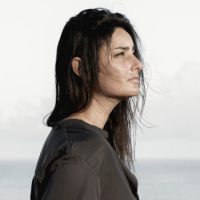
Danielle Southcott, Having dedicated her life to the sea, Danielle was named by the Royal Institute of Naval Architects as one of the most influential women of the past century. Her mission is to be the clean shipping generation leader. Danielle accepted a gold medal from the governments of Canada and Costa Rica on behalf of SAILCARGO INC., a company she founded. From the Great Lakes of Canada, Danielle began sailing at age 13. A graduate of the ‘’Enkhuizer’’ Sea Academy, she learned Dutch to graduate. She holds a 200T masters ticket which empowered her to captain the flagship of Barbados, schooner Ruth. Danielle wrote and implemented the successful launch of Ruth, which was the largest ship built in the history of the country. She is co-founder of a Costa Rican non-profit that plants thousands of trees and creates jobs in a vulnerable coastal community. Each year Danielle’s company sponsors a young lady to sail on the St. Lawrence II – a ‘’thank you’’ to the ship that first inspired her. Connect with Danielle on LinkedIn.
